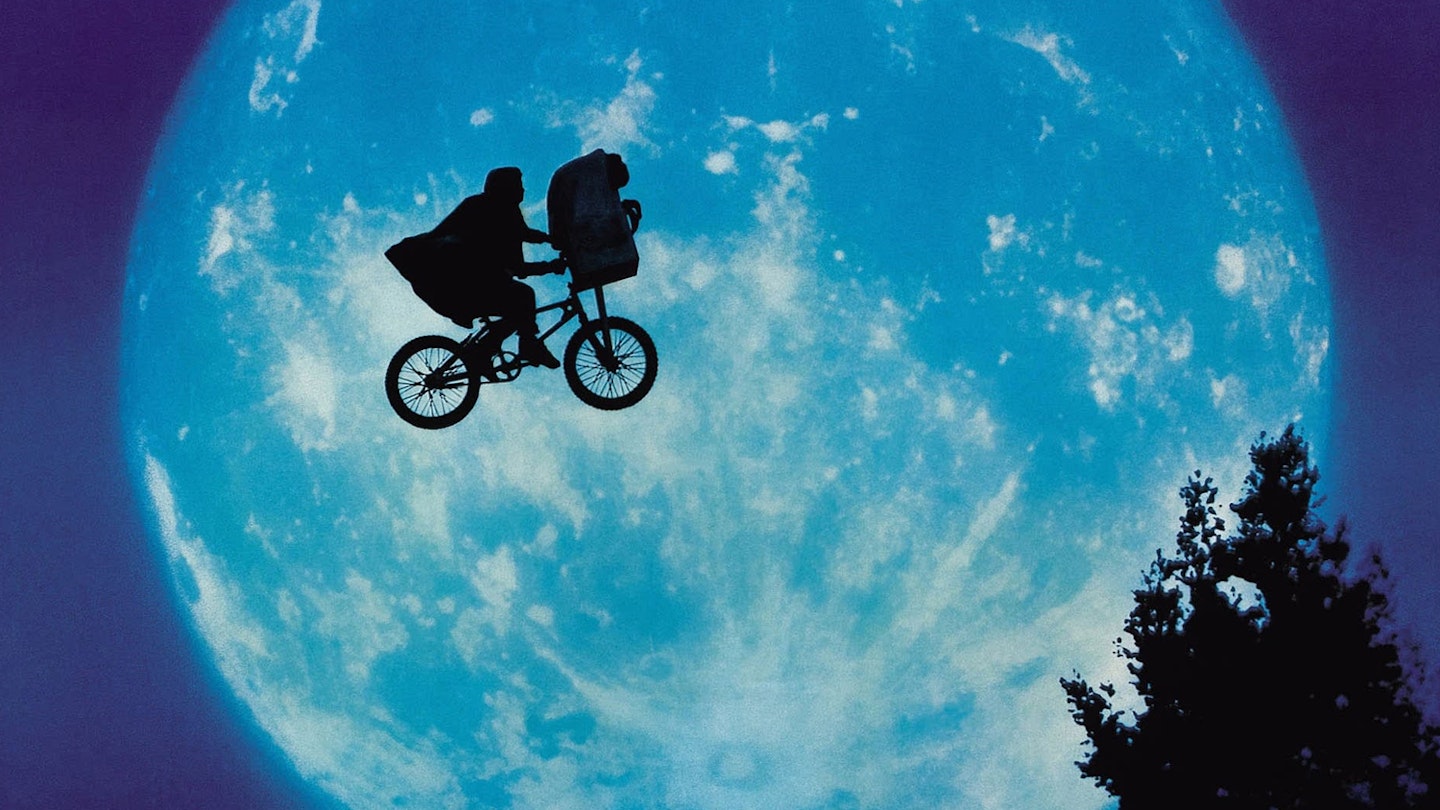The big one, the capo di capi, the giant kahuna... yes, '80s Month's celebration of '80s movies is powering into its final stages by counting down to number 1. Will Empire's pick of the greatest film of the decade be Die Hard, Raiders or Blade Runner, or has Caddyshack, well, tunnelled its way to the top? Find out below...
39. First Blood (1982)
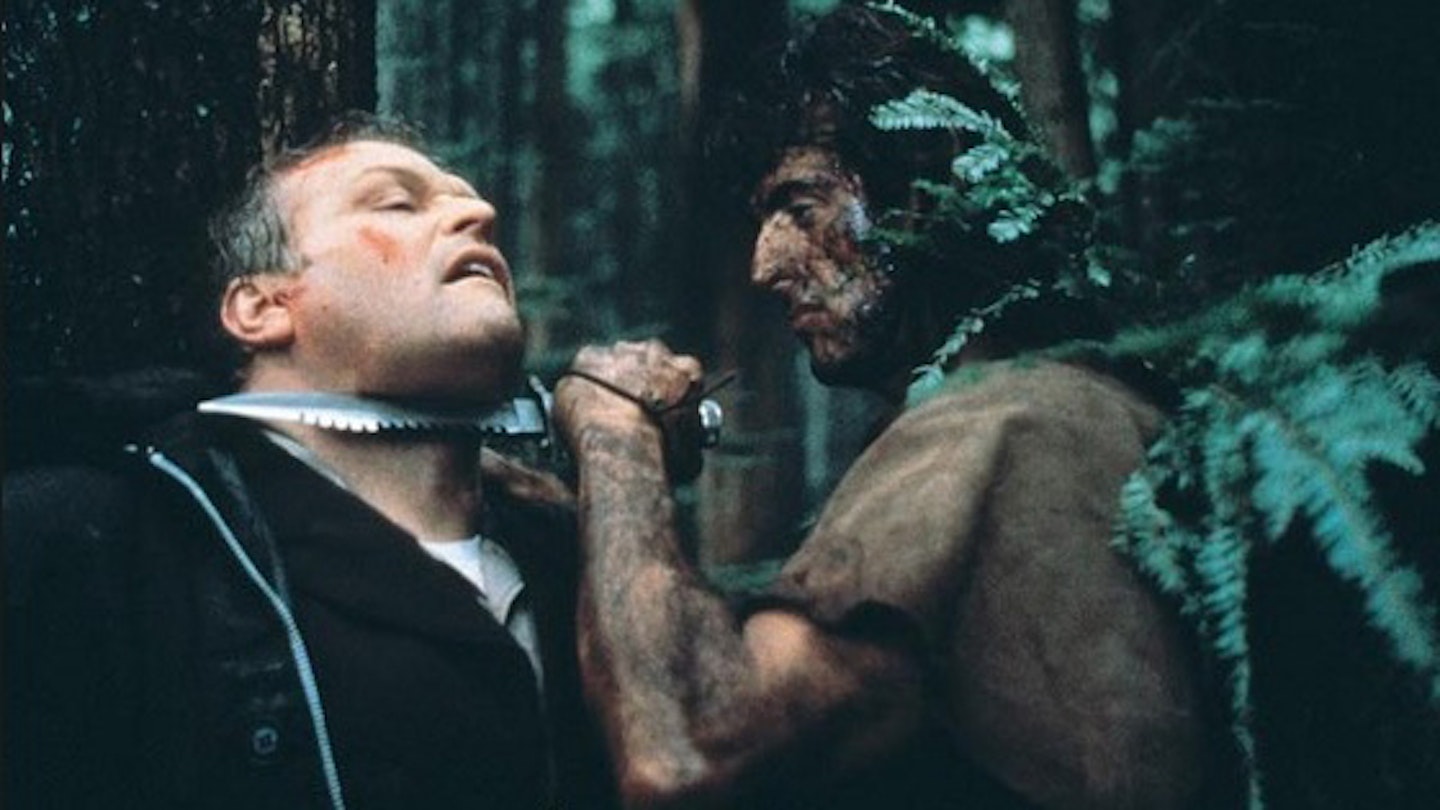
Rambo was forced into the role of one-man-army superhero for the daft sequels, so it's refreshing to revisit First Blood and find a thrilling pulp drama about a PTS sufferer driven over the edge by bullying small-town petty-mindedness. Sylvester Stallone is a decent actor when given the opportunity, and John Rambo in this film, crucially, is almost believable: the crunchy action kept under tight control by director Ted Kotcheff. It's a decent adaptation of David Morrell's page-turning novel too, although Brian Dennehy's Sheriff Teasle gets shorter shrift, and the devastating ending is changed so that Rambo lives.
38. Cinema Paradiso (1988)
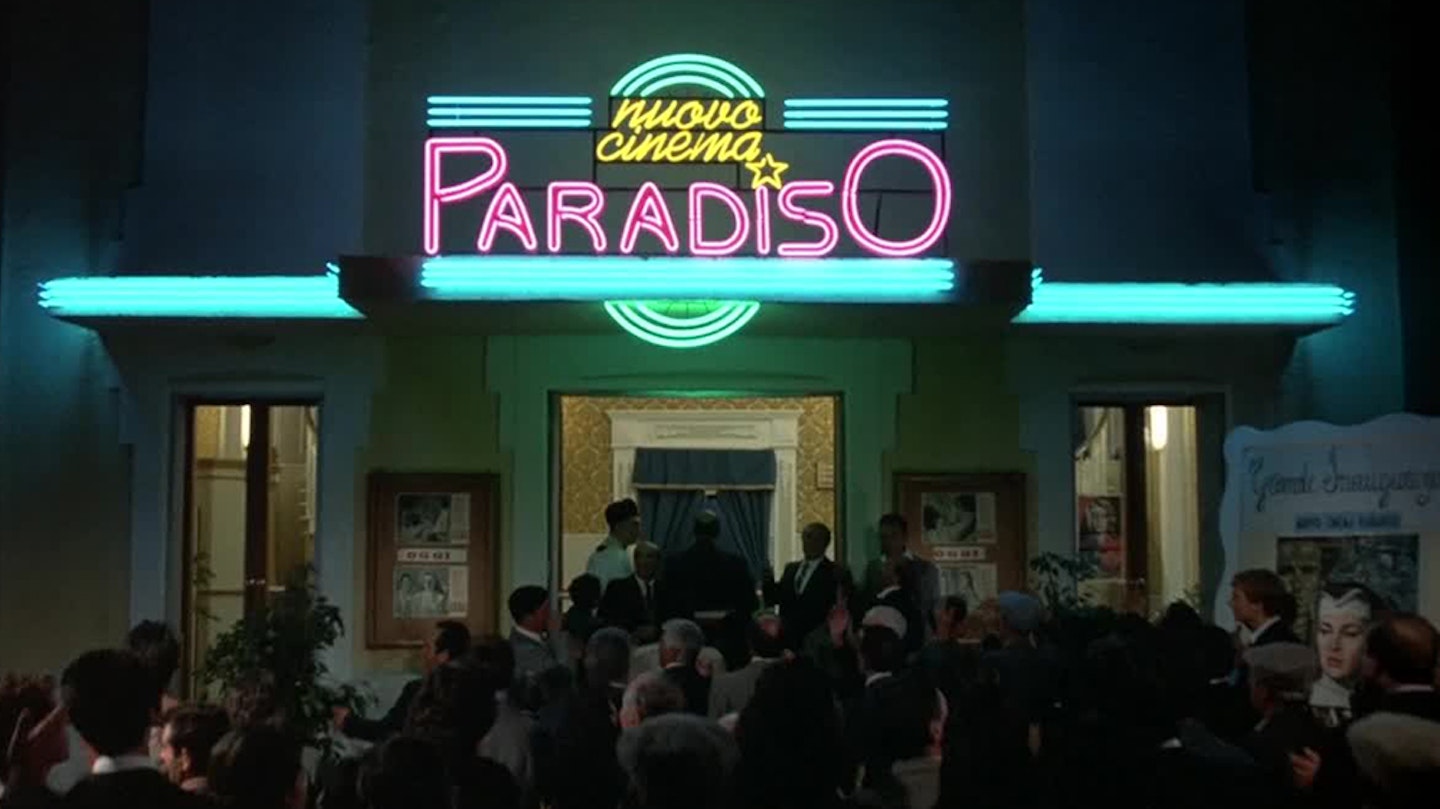
A film that still makes you wish your local multiplex was a bit less, well, 'multi', the single-screened Sicilian cinema in Giuseppe Tornatore's Oscar winner glows with the transporting power of the movies. Looking back, it helped catapult its US distributors Miramax – typically, Harvey Weinstein was one of the first to spot its marketability – to a period of '90s glory, Shakespeare In Love et al, and shifted Italian cinema away from its roots. Never mind all that, though, and immerse yourself into a swooning, sun-kissed love letter to movies, friendship and to romance itself.
37. The Man With Two Brains (1983)
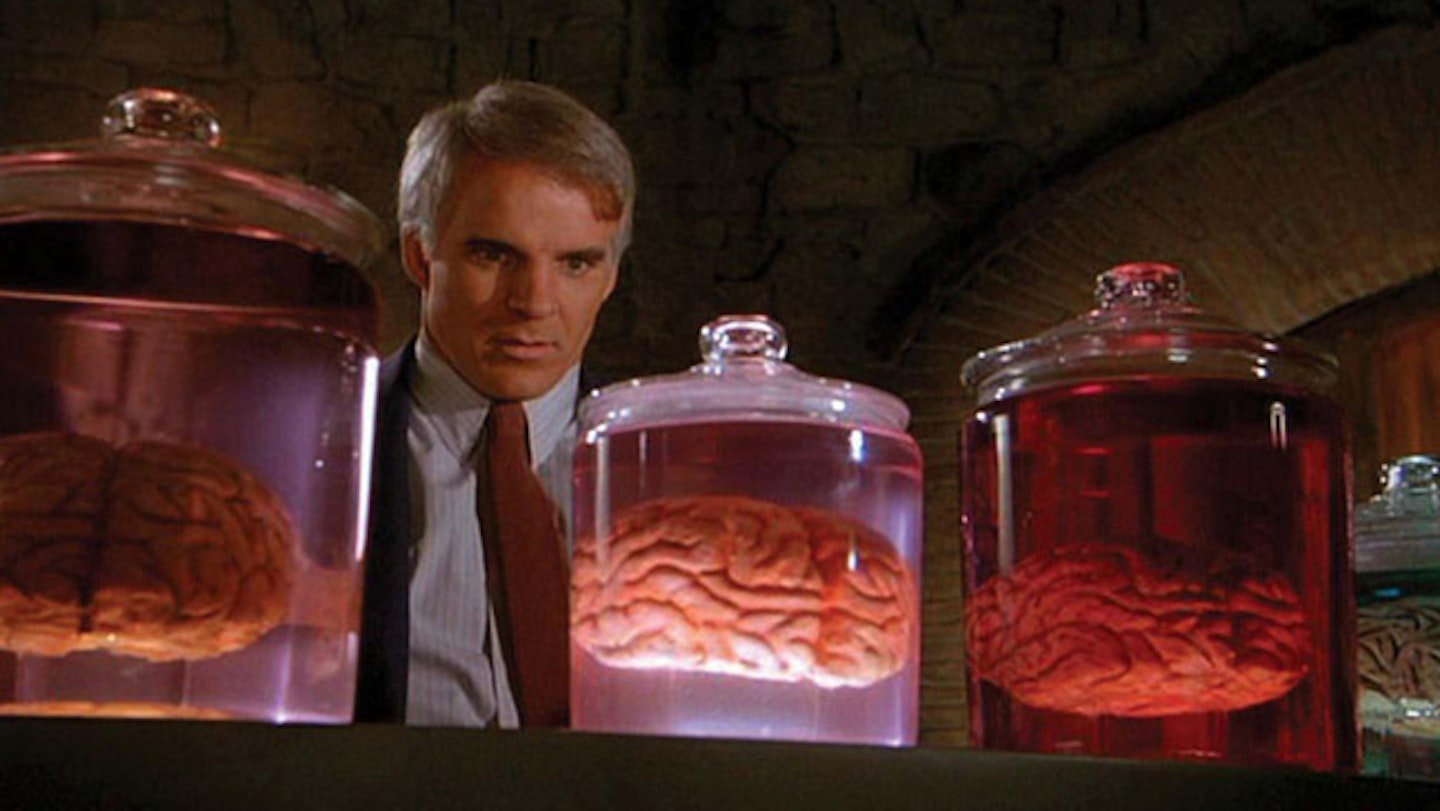
Dr Hfuhruhurr (Steve Martin) pioneers a new procedure allowing him to transplant human brain into new bodies. It's an out-there premise, even coming from the man behind The Jerk, and occasionally feels a bit uneven but it still yields plenty of laughs in what is Martin's early '80s highpoint. There's also a fair few jabs at male sexual vanity buried within as Hfuhruhurr agonises over whether or not he's lost his moral compass in his pursuit of the perfect woman. Given that he attempts to poison Randi Brooks with window cleaner and throws Kathleen Turner into a bog, we're saying he probably has. "Into the mud, scum queen!"
36. Akira (1988)
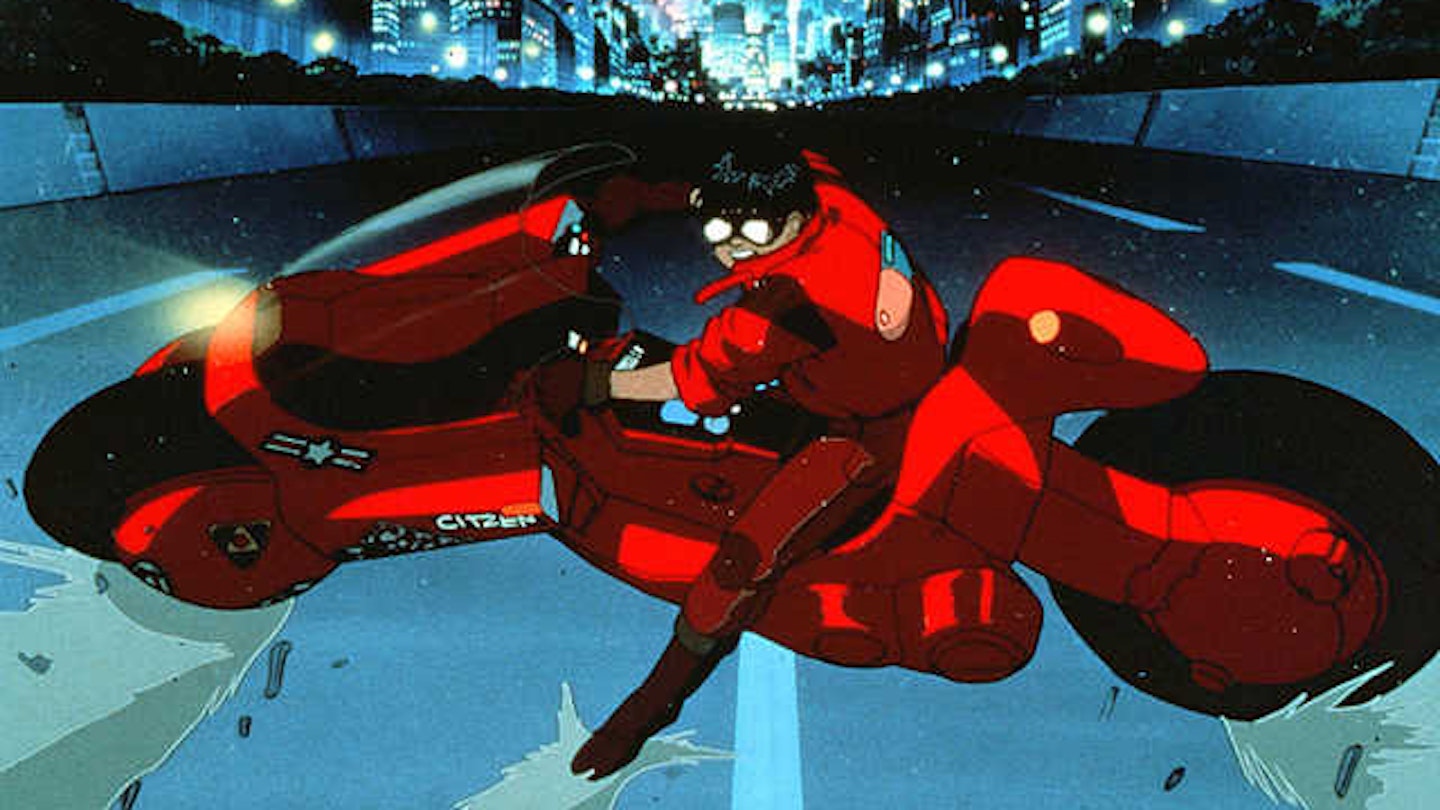
Sometimes, when things aren't going our way in the Empire office, we like to fall to our knees in despair and wail to the heavens: "TETSUOOOO!" Though, admittedly, the Empire office does not often feature a member of a dystopian Neo Tokyo motorcycle gang mutate into a giant mass of ever-expanding limbs through uncontrollable psychic powers. Akira is yet another vision of the future through a distinctly 1980s lens – and yet, this vision is fiercely, brilliantly unique.
Read Empire's account of the making of Akira here__.
35. Local Hero (1983)
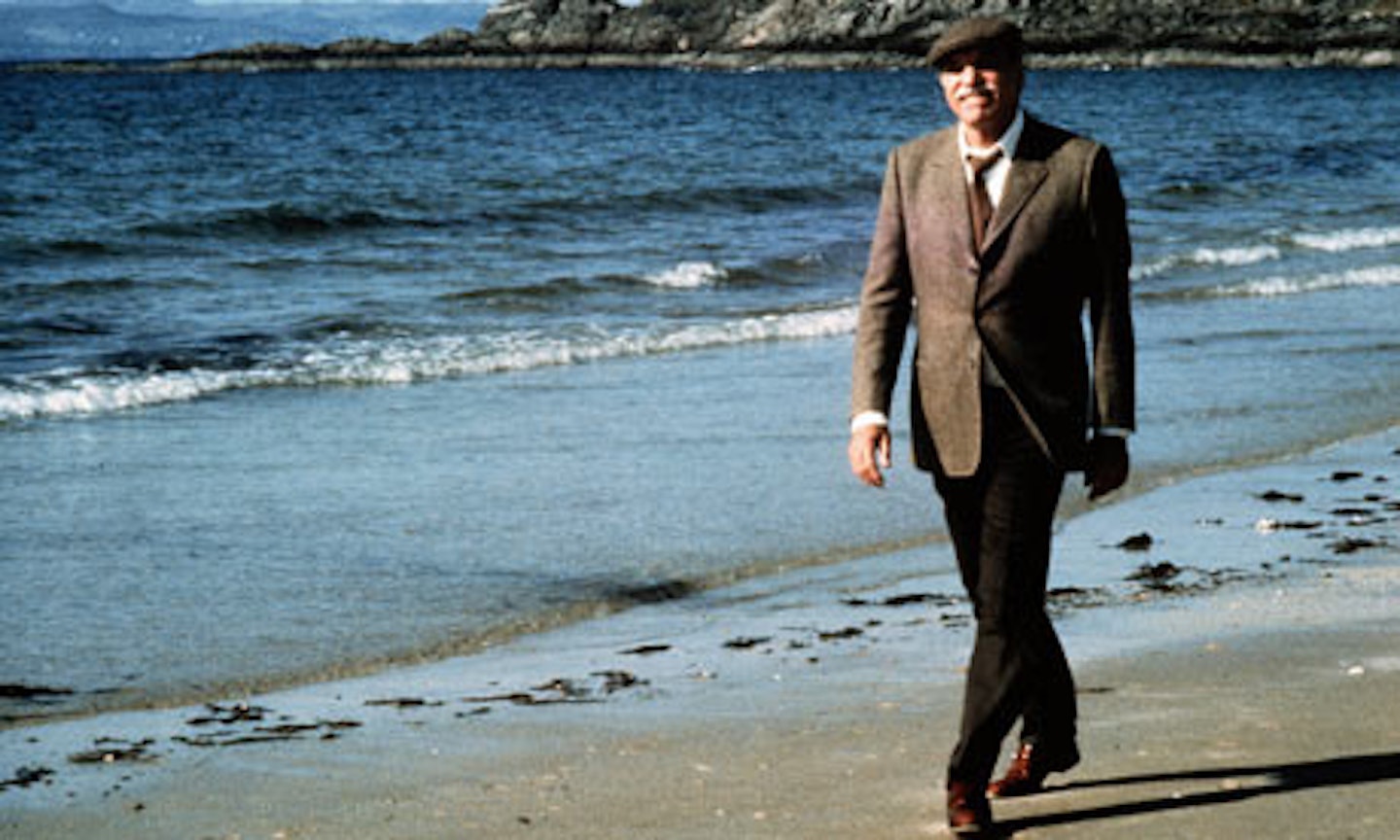
Big-shot Yank goes to Scottish seaside town and magic ensues. Not just the plot but, thanks to Burt Lancaster's presence, the reality of Bill Forsyth's cosy, Mark Knopfler-scored classic. That synopsis barely scraps the surface of Local Hero's timeless charm. It's got a lovely, anti-Thatcherite moral too, about how money can't buy everything – not even if you're an oil tycoon with a powerful telescope who looks a lot like Burt Lancaster. It's fair to say its British producer, David Puttnam, the man also behind Chariots Of Fire and The Killing Fields, had a pretty decent decade.
34. The Killer (1989)
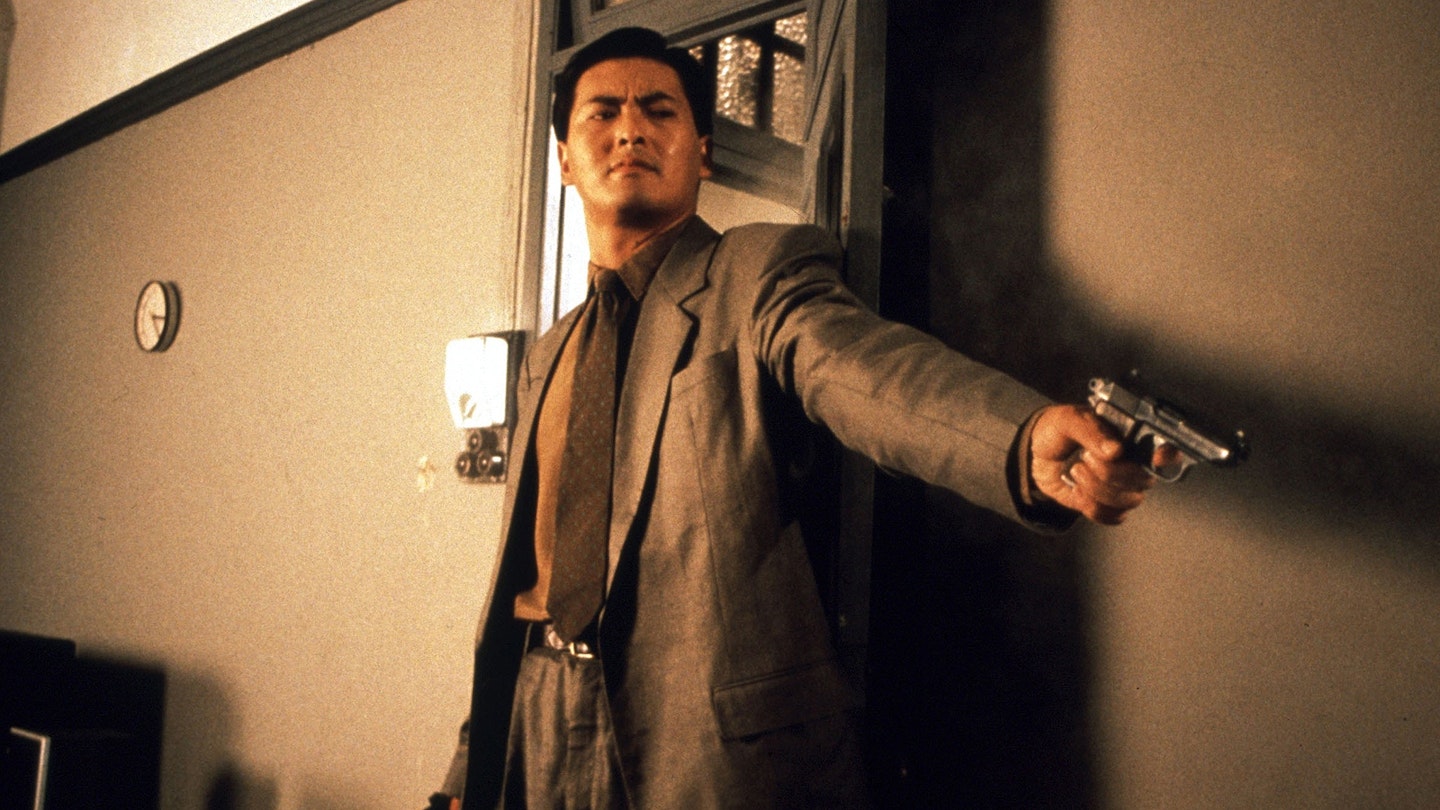
Adding 37 percent more slow-mo to the decade, John Woo exploded out of Hong Kong action cinema and into the international spotlight with a run of badass crime flicks in which Chow Yun-Fat wasted ruthless gangsters in big jackets and there would often be doves. Following A Better Tomorrow, Woo's pioneering use of gun-fu, a lucky charm in Yun-Fat and those doves all came together in blazing church-set crescendo to this attention-grabbing maelstrom of Triad carnage. Nestled amid the awesome pyrotechnics are ageless themes of honour and redemption worthy of Woo's main influences, Martin Scorsese and Jean-Pierre Melville.
33. Indiana Jones And The Last Crusade (1989)
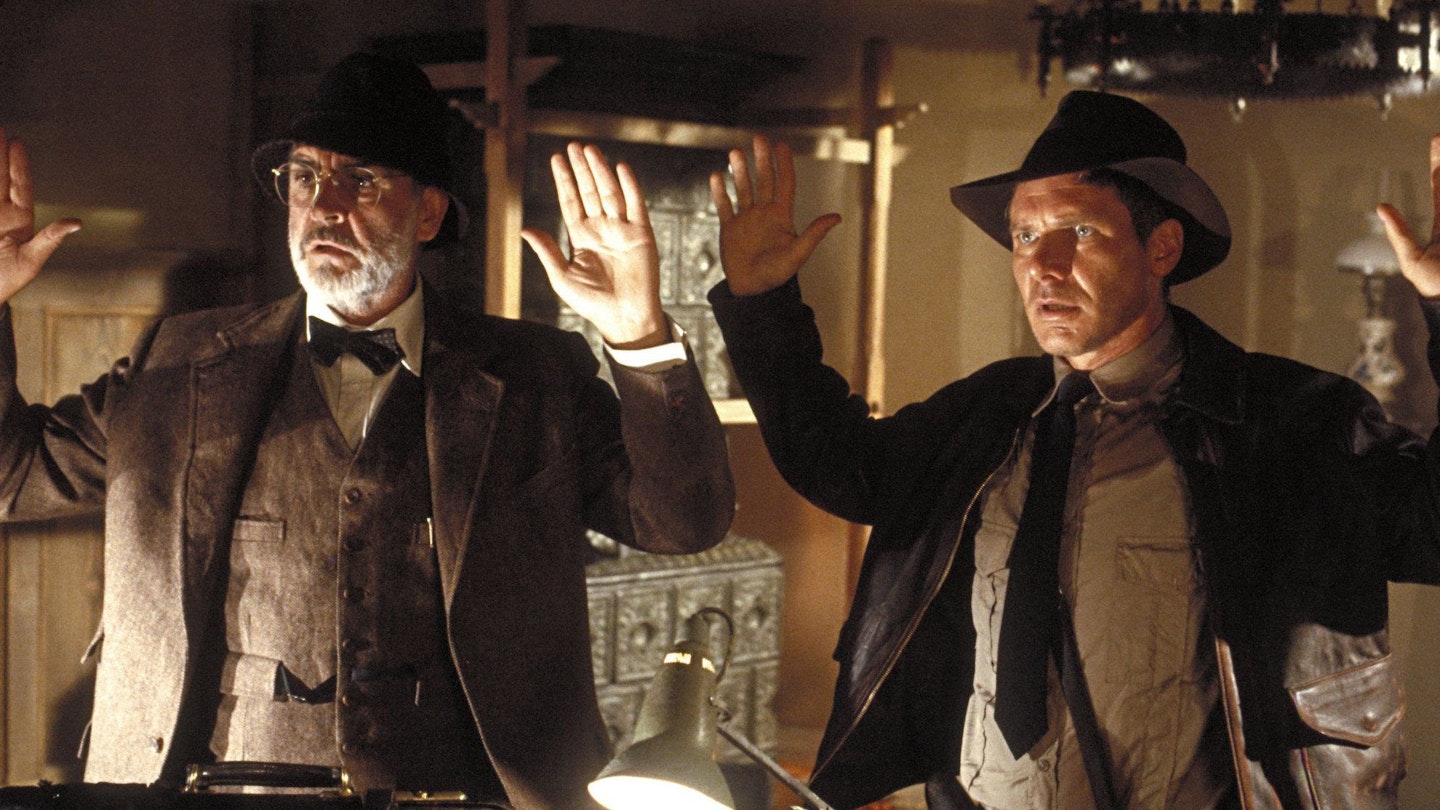
Here is the factually correct opinion on which Indiana Jones films are best, in descending order of greatness: Raiders, Last Crusade, Temple Of Doom, The Film Which Must Not Be Named. Still stung by criticism that Temple was too dark, Steven Spielberg whipped up a threequel bursting with the spirit of old-school adventure, and sparkling with chemistry between the fedora-ed hero (Harrison Ford) and his aloof father (Sean Connery). The film's finale, having our heroes ride off into the sunset, was as perfect as finales come. (At least, until The Film Which Must Not Be Named went and messed things up.)
32. Tootsie (1982)
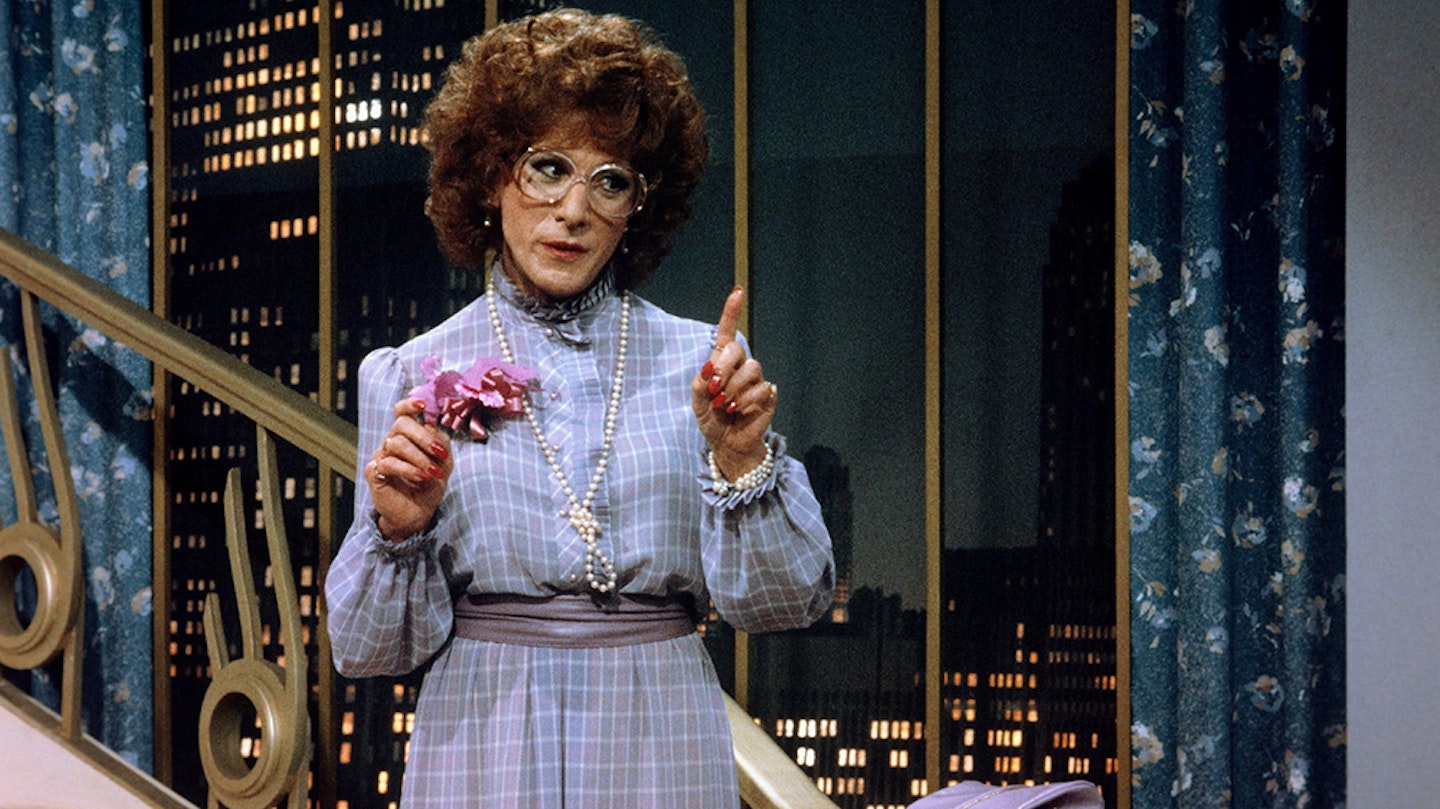
"No one will hire you!" says Michael Dorsey's agent. Michael Dorsey has other ideas. As the soap star Tootsie, Dustin Hoffman makes for an astonishingly convincing woman – but it's what lies under the fake breasts and permed wig that really startles. There are other cross-dressing comedies beyond Tootsie, but none have the nuance or insight that Sydney Pollack's comic drama offers; so powerful and eye-opening was the experience that Hoffman once said he never regarded the film as a comedy.
31. Ghostbusters (1984)
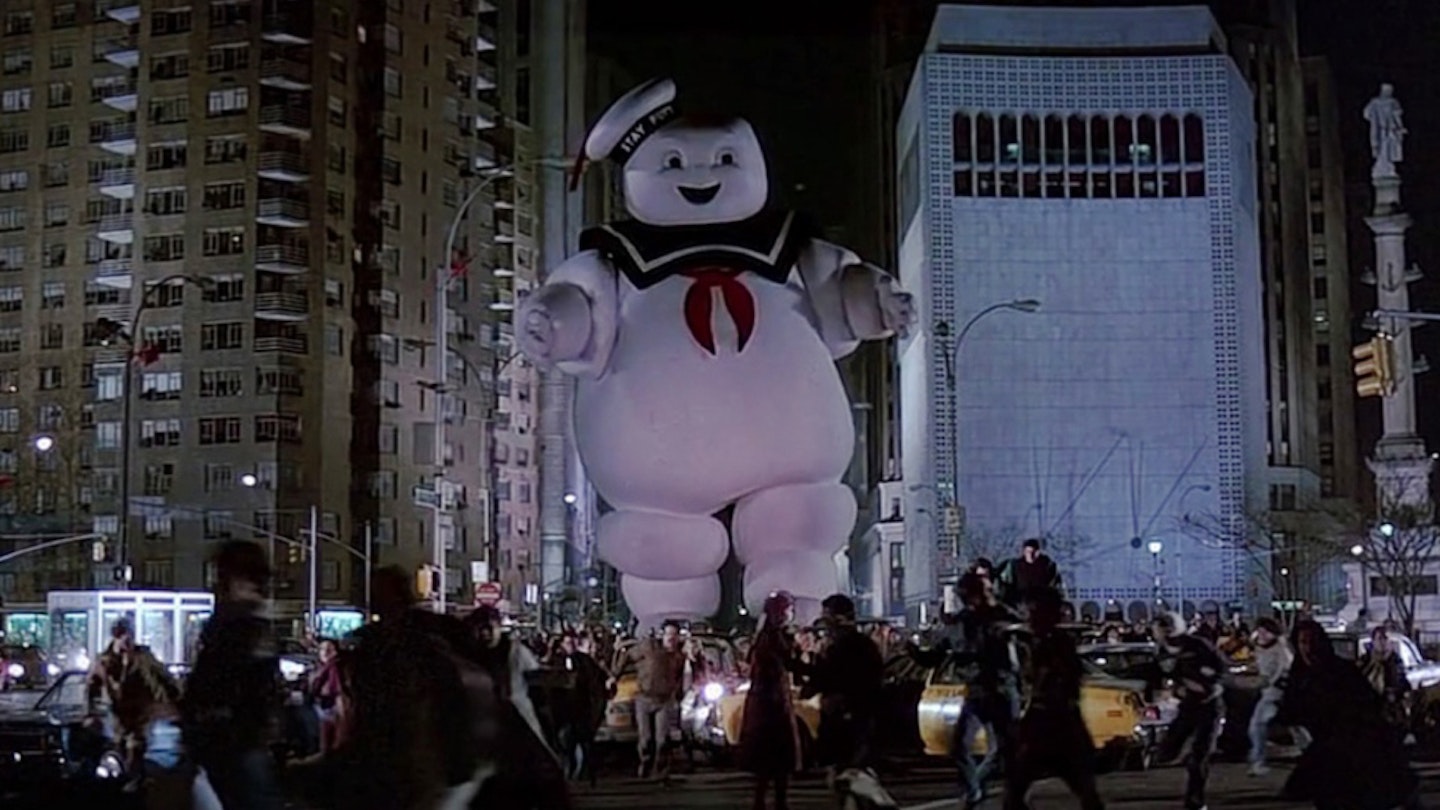
As far as parapsychologists go, this lot might just be our favourite. Spooked by a dead librarian in the New York Public Library, the 'busters immediately find themselves in a city haunted by ectoplasm, fridges and Marshmallow Men{
30. A Nightmare On Elm Street (1984)
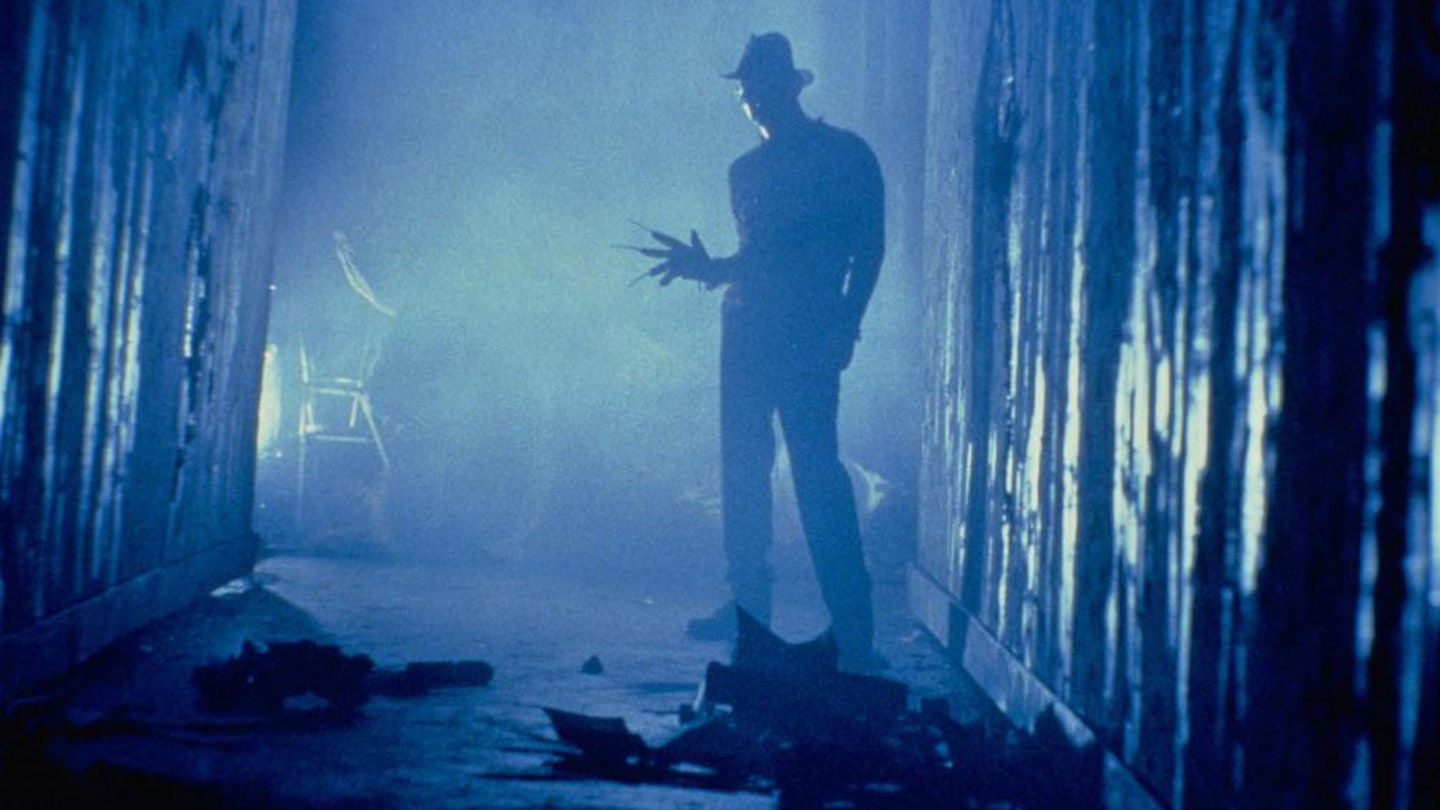
The hat, the glove, the sweater, the make-up. Freddy Krueger was always going to be an iconic villain, although nobody quite realised the extent to which he'd dominate the '80s. He became a stand-up comedian in the sequels, but here, in Wes Craven's original Nightmare, he's much talked about but little seen. And Robert Englund's monster is frightening too. Craven doesn't quite nail nightmare-logic in the way David Lynch does, but the first Elm Street still manages some extraordinary imagery: the rubber-wall loom over the bed; the marshmallow stairs; Amanda Wyss smeared across a ceiling. Not yet encumbered by the baggage to come, Freddy's at his most powerful here.
29. Top Secret! (1984)
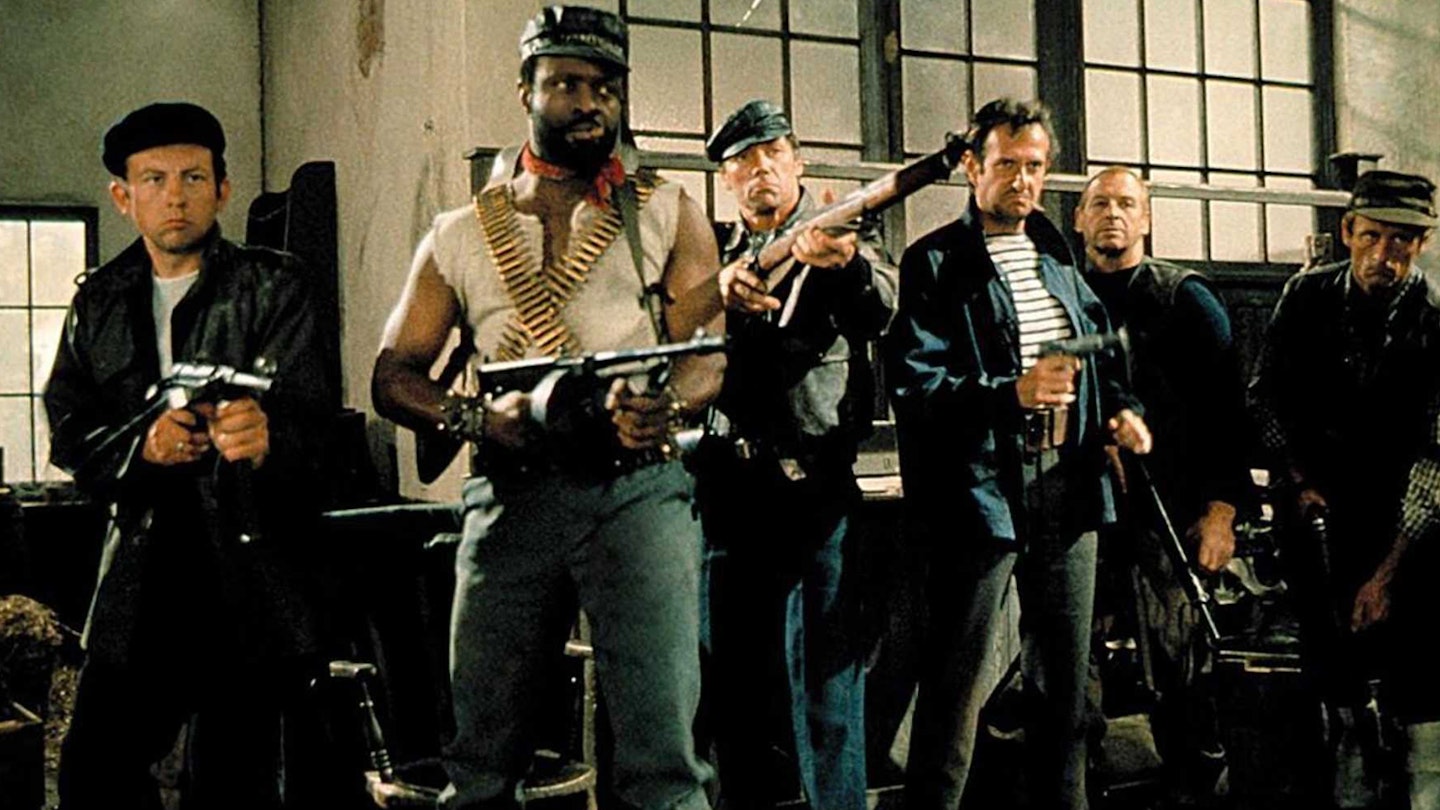
The second film from the Zucker-Abrahams-Zucker team was a box-office disappointment upon release, and is not remembered as fondly as Airplane! or The Naked Gun; perhaps owing to its odd genre mashups (Elvis Presley, war movies, espionage thrillers...). A shame, as Top Secret! is unconditionally one of the best spoofs ever made, stuffed with glorious visual gags at a rate to humiliate most modern comedies. "How Silly Can You Get?" sings Val Kilmer in a German prison during one scene. Answer: extremely.
28. The Naked Gun: From The Files Of Police Squad! (1988)
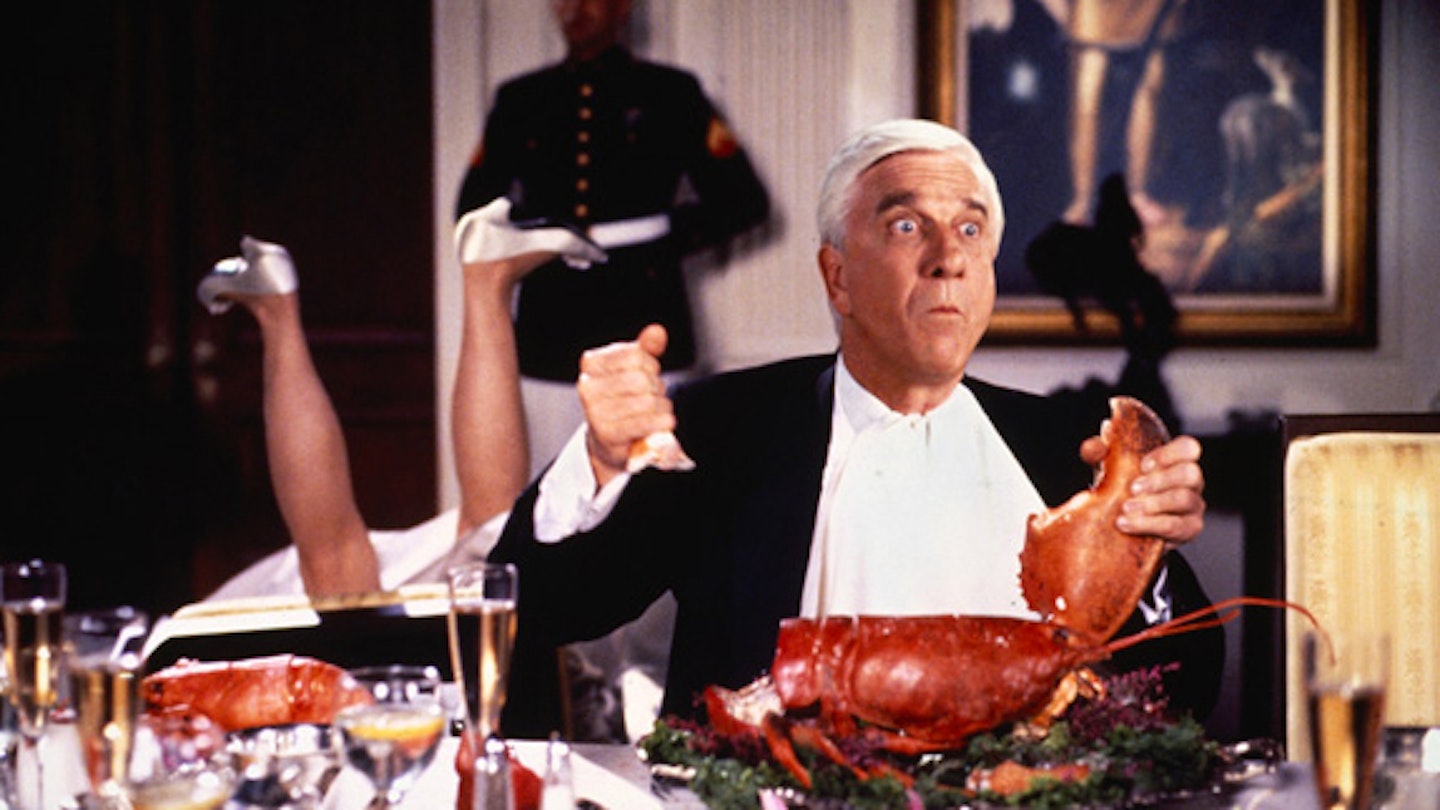
The Naked Gun represents ZAZ (that's Jerry Zucker, Jim Abrahams and David Zucker) near the height of their comic powers alongside co-writer Pat Proft. Taking the short-lived Police Squad! TV series, upping the stakes but keeping the seriously silly streak, the movie offers an endless supply of quotable lines and utter insanity. All heightened by master of the straight turn, Leslie Nielsen, blundering his way through a case that ends up involving mind control, baseball players and the Queen. And not forgetting a lurking vein of subversive satire that still rings true in today's politically charged policing climate: "Just think," ponders Frank when he's sacked, "next time I shoot someone, I could be arrested..."
27. Jean De Florette (1986)
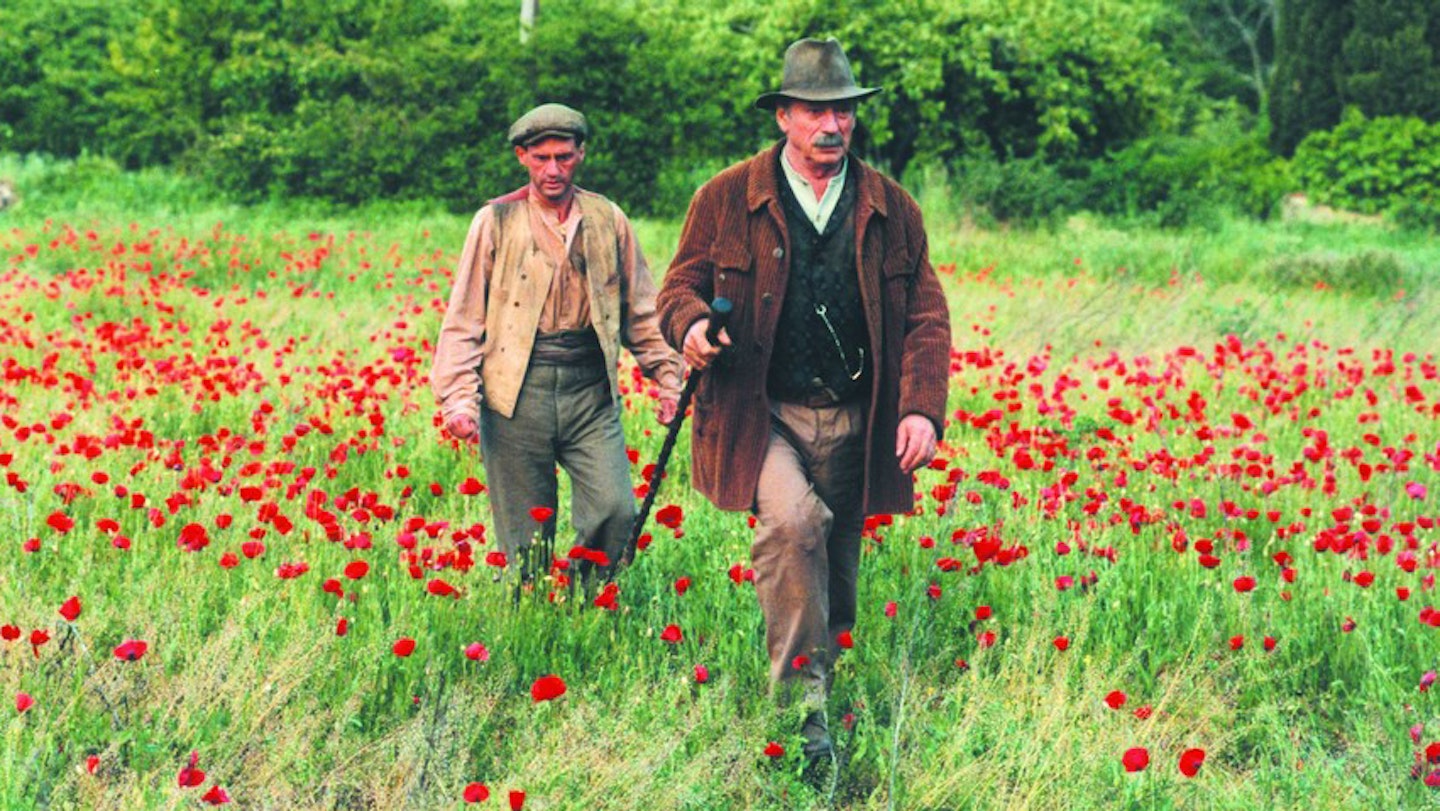
An '80s classic with not a glimpse of a machine gun, angry cop or massive explosion, the first part of Claude Berri's adaptation of Marcel Pagnol's novel Manon Des Sources is a sun-ripened slice of purest Frenchness. If you wondered where they got the idea from for those Stella Artois ads, it's somewhere in the DNA of this Provençal fable about a sneaky pair of peasants (the great Yves Montand and Daniel Auteuil) trying to diddle their way to acres of farmland. There's a hidden spring, some rabbit farming and a wood nymph. Trust us, it's magnifique.
26. Amadeus (1984)
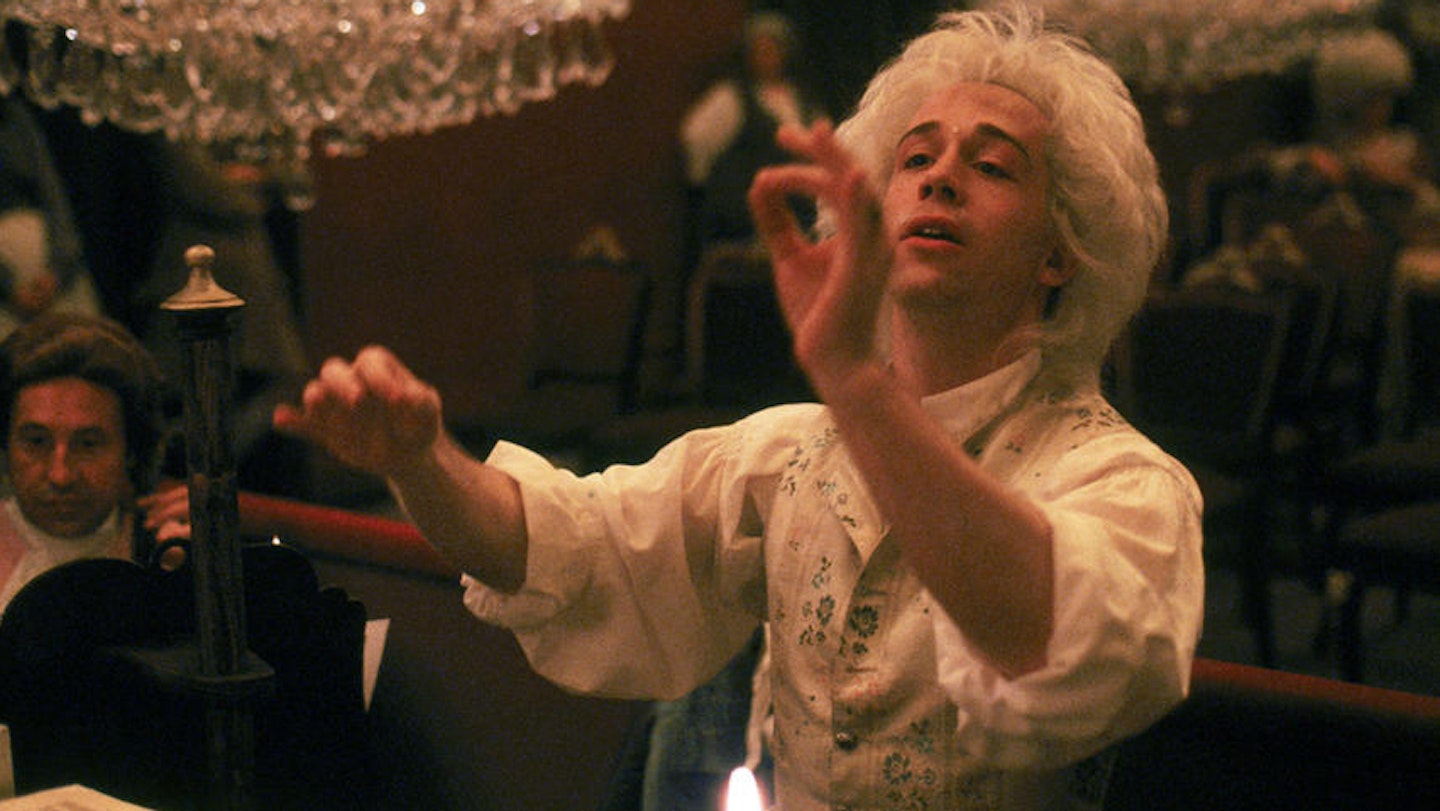
As anyone familiar with Falco's '80s pop classic_ will tell you, Wolfgang Amadeus Mozart wrote The Magic Flute in the year of his death, 1791. It's here, at Mozart's tragic end, that Milos Forman's costumed opulence switches into requiem mode. Prior to that, Tom Hulce's wonderfully skittishly, playful take on the great musical genius keeps the tone jaunty as F. Murray Abraham stews as Salieri and Jeffrey Jones is his often-bemused patron, Emperor Joseph II. The result yielded eight Oscars and a pretty handy soundtrack.
25. The Princess Bride (1987)
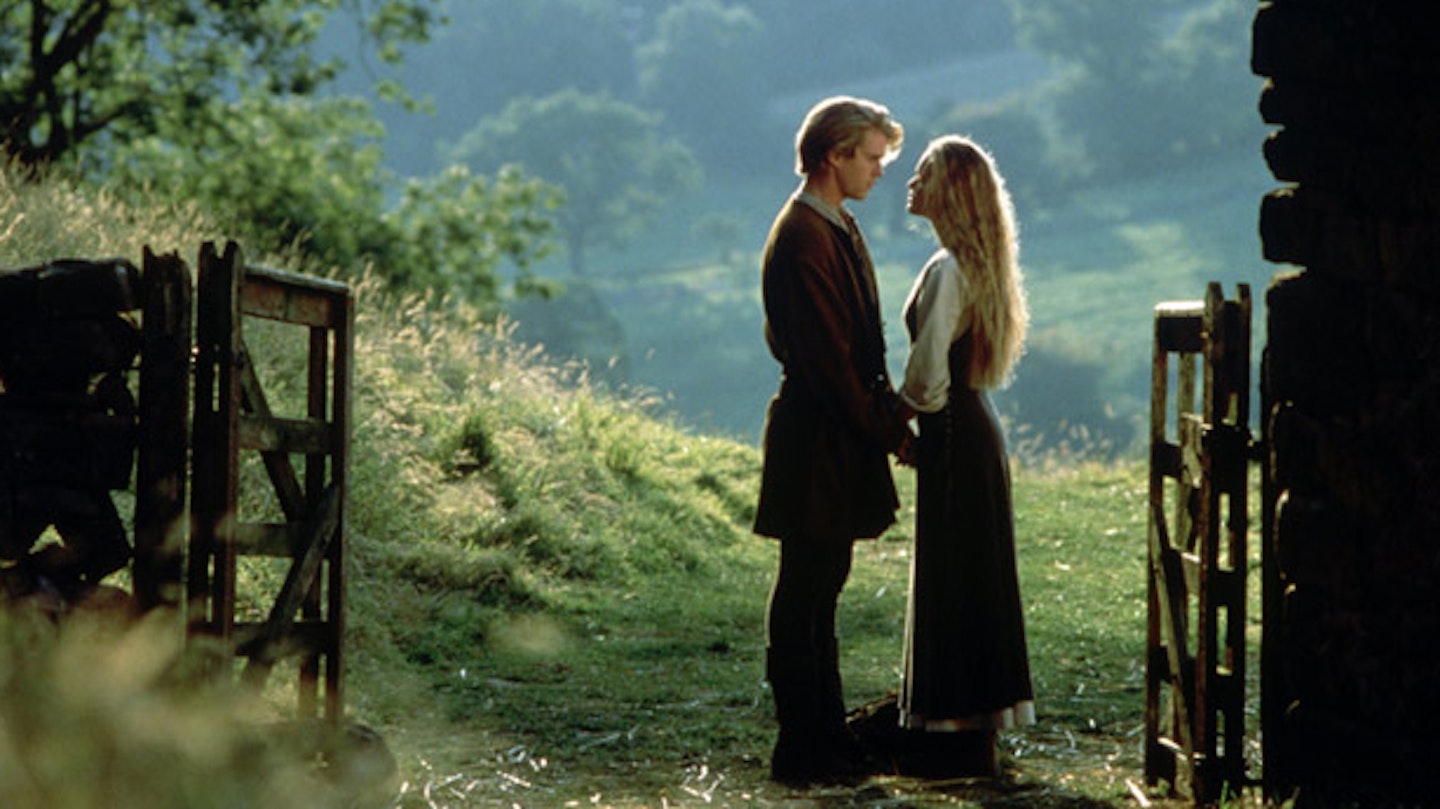
The Princess Bride is many things. It's a fantasy, it's a comedy, it's a romance, it's an adventure, it's a swashbuckler. It's a fairy tale, primarily, a whirlwind yarn of princes and princesses, pirates and giants, villages and castles. It's also a wry take on fairy tales, with a sly satirical edge, and whimsically silly names like Prince Humperdinck, Fezzik and Buttercup. It is ultimately a simple and sweetly straightforward story-within-a-story, and fundamentally very old-fashioned. Languishing for years in the dungeons of development hell, it almost never made it to screen – a thought that now seems, well, inconceivable.
24. Withnail And I (1987)
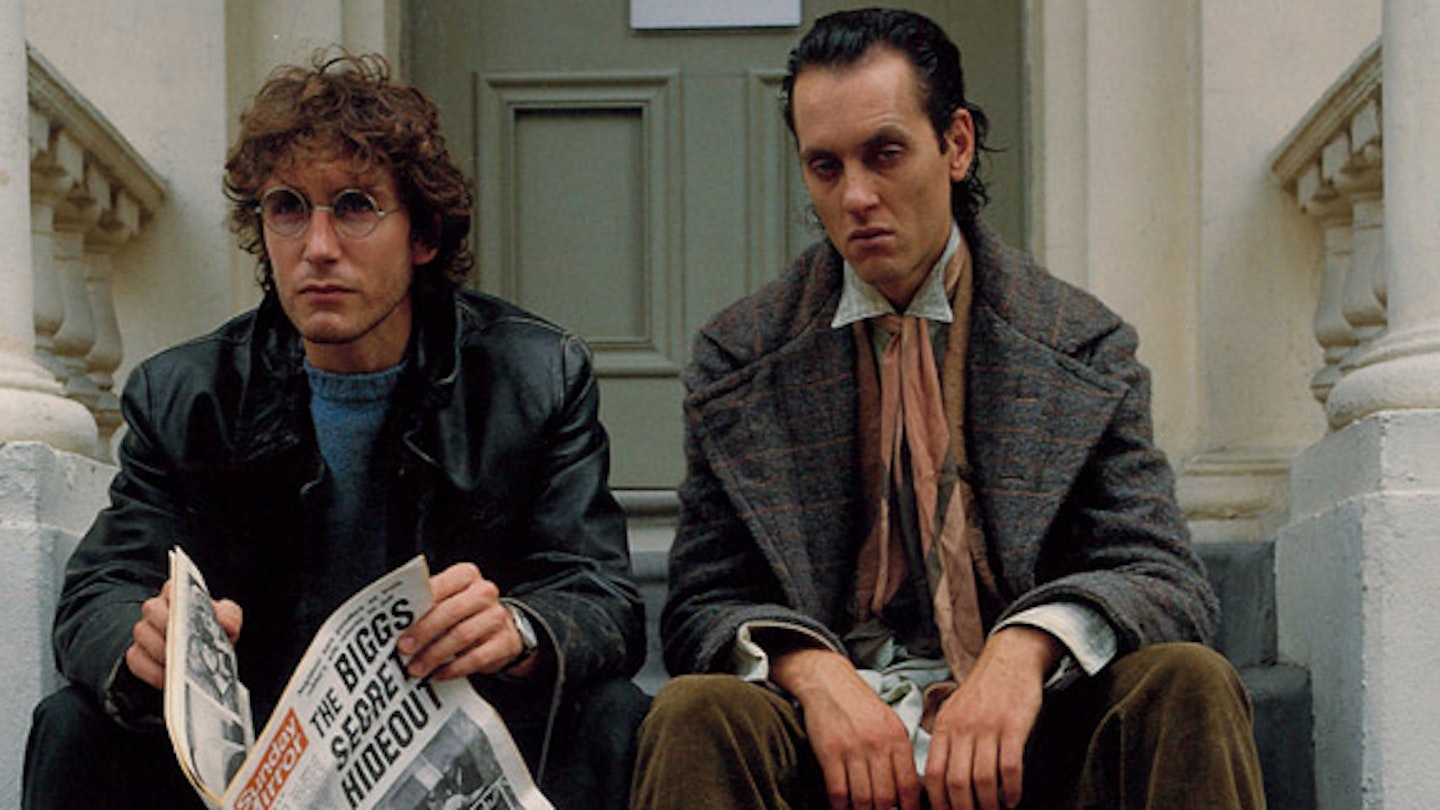
Withnail (Richard E. Grant, a teetotaler in real life) and "I" (Paul McGann, his character never named on screen) live a life of squalor and unemployment in North London. When they learn of the extremely distressing news that they've run out of wine, the only sensible option seems to be a Great British Holiday in the Lake District. Bruce Robinson's boozy comedy is set in the 1960s, but it shares a grotty alternative spirit that is every bit the 1980s. A reassuringly British enterprise, credit must go to Robinson's sharp-as-spirits script, which manages quotable comedy and devastating pathos in every sentence.
23. 48 Hrs. (1982)
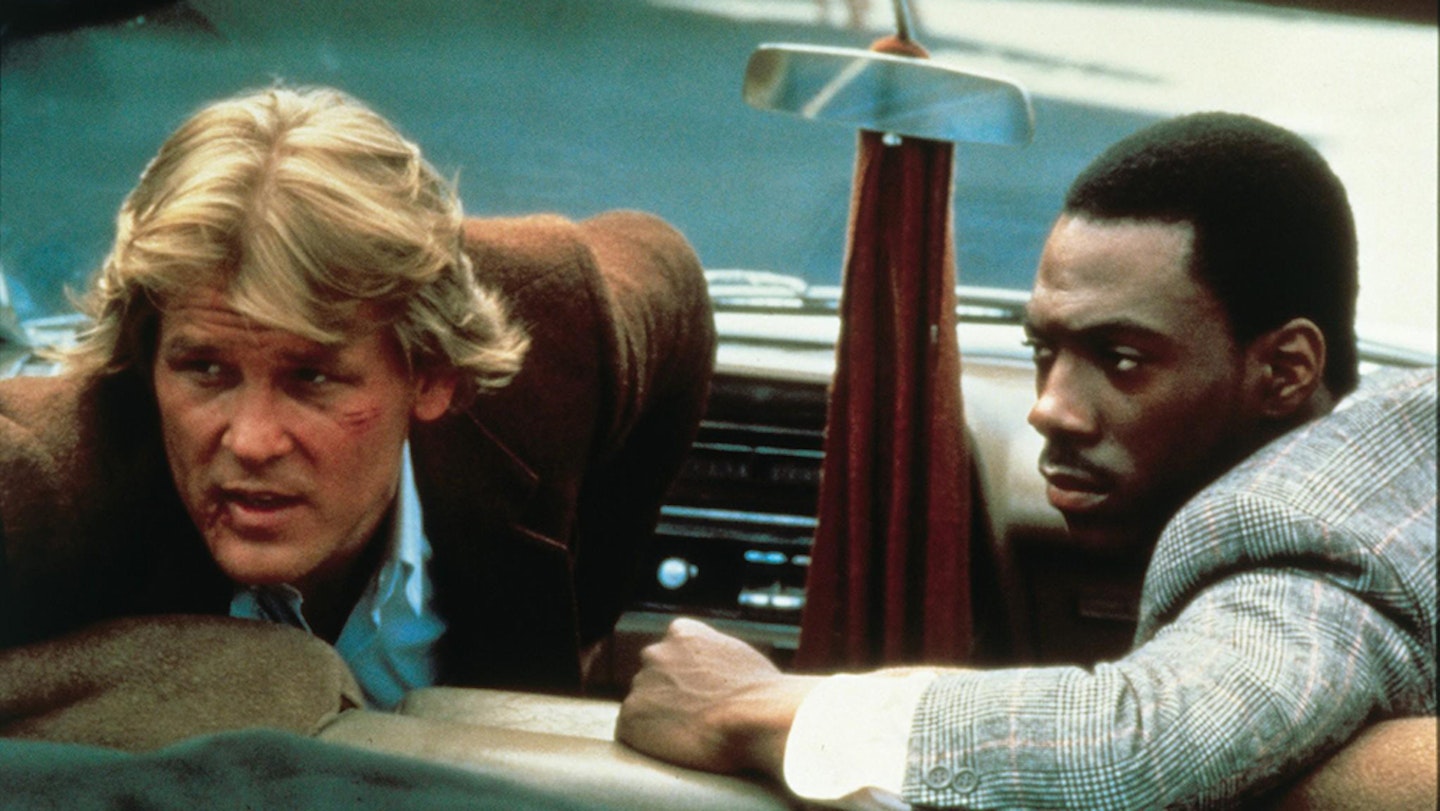
It's now got a reputation as the film that ignited the mismatched-buddy-action-comedy genre, but while there are definitely laughs, 48 Hrs. might be harder-edged than you remember. Eddie Murphy's incendiary early performance as convict Reggie Hammond sparks aggressively off Nick Nolte's shabby racist San Francisco cop Jack Cates, but crucially, even by the end of the film, the pair never really like each other. Director Walter Hill would phone in action films later in his career – Red Heat, Another 48 Hrs. – but this is a reminder of a time when he was properly on fire.
22. An American Werewolf In London (1981)
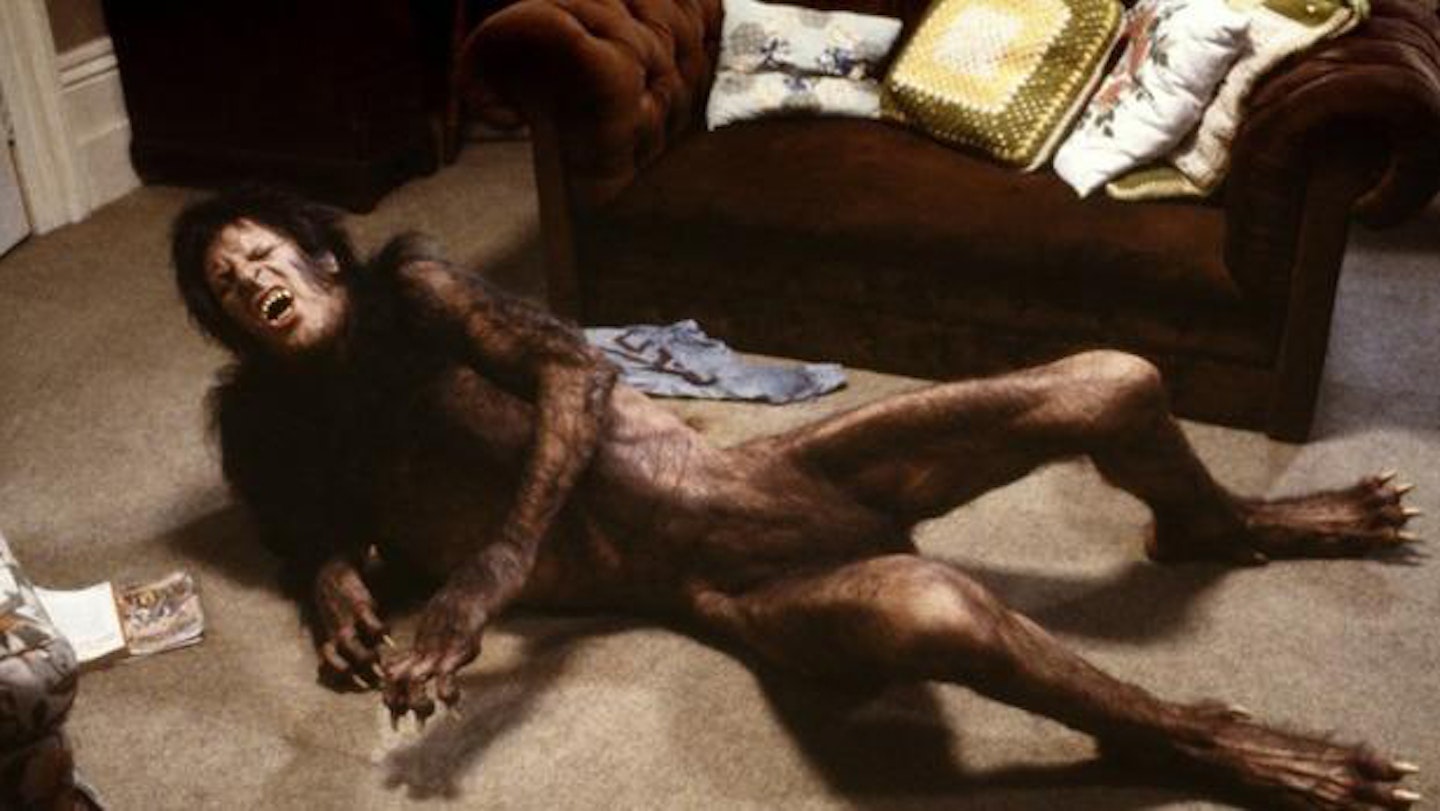
Very few films have successfully negotiated a line between comedy and horror, making the note-perfect American Werewolf In London all the more impressive. There's genuine atmosphere in the stay-off-the-moors opening; genuine warmth in the tragic relationship between David Naughton and Jenny Agutter; genuine scares courtesy of surreal nightmares and waking-world throat ripping; and proper laughs thanks to Griffin Dunne's gradually decaying supernatural chorus and some snappy dialogue. Also, "A naked man stole my balloons." And Brian Glover's "That's enough!" The belated sequel An American Werewolf In Paris got nowhere close to the genius of John Landis' original. Thankfully the Weinsteins' remake never happened.
21. Raising Arizona (1987)
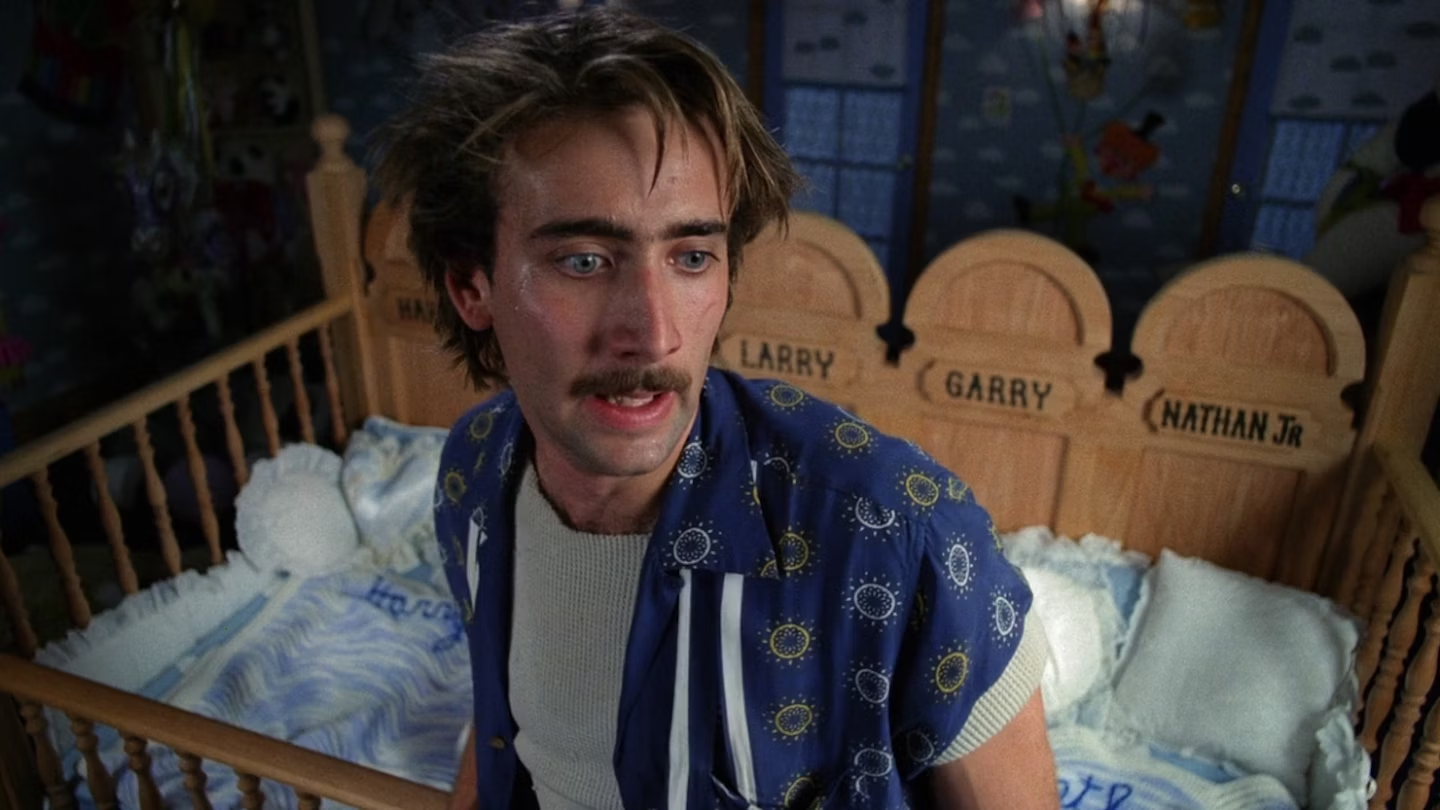
1984.s Blood Simple was the Coen brothers' actual debut, but it was this curious little black comedy which truly announced Joel and Ethan to a wider audience. Featuring two outstanding early performances from Nicolas Cage and Holly Hunter, it's a farcical family comedy of Southern graces and stolen babies, of screwball criminality and unexpected violence, of hapless bank robbers and semi-mystical biker bounty hunters. We still hold out hope for a Raising Utah sequel.
20. Once Upon A Time In America (1984)
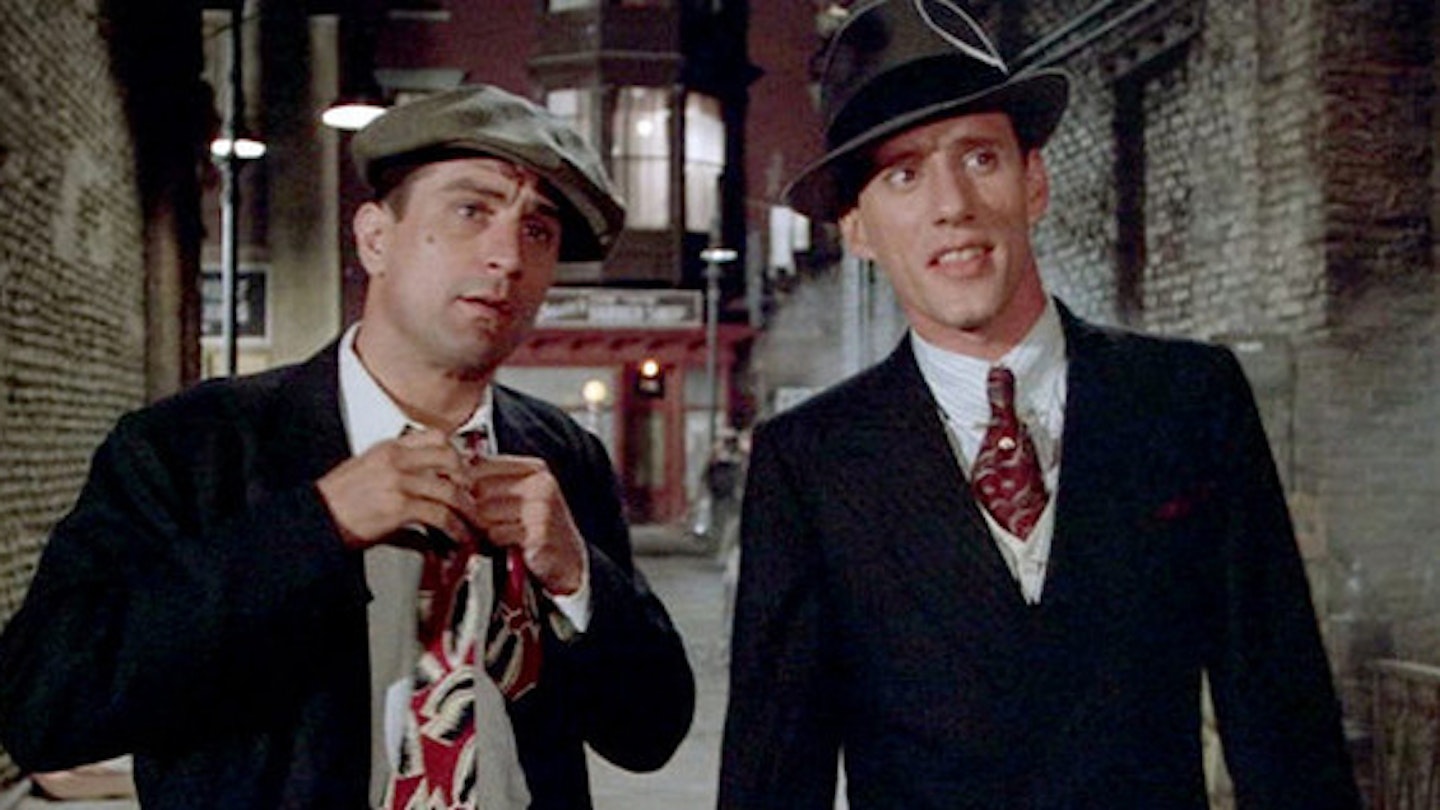
A gorgeous recreation of New York that was mostly shot in Rome's Cinecittà Studios, Sergio Leone's decade-spanning gangster opus grows in stature with each passing year. Admittedly, it started that process in a state of critical and box office purgatory. Its first theatrical cut, the cinematic equivalent of a Marine buzz cut, butchered its elaborate stature, chopping its languid rhythms into 139 brusque minutes. Now restored to something close to its full, four-and-a-bit-hour glory, it's an '80s masterpiece with a very '70s sensibility.
19. Star Wars: Episode VI - The Return Of The Jedi (1983)
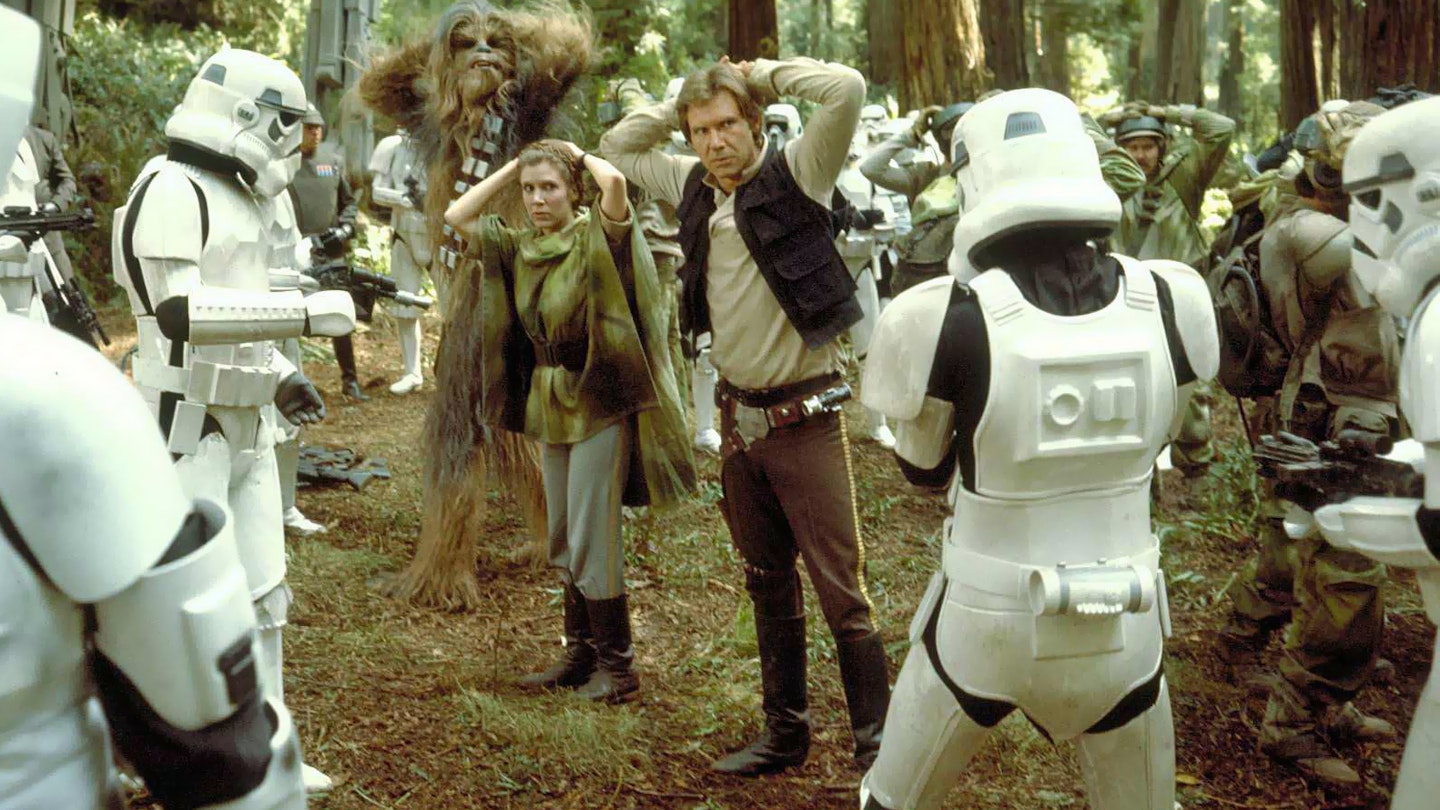
Director Richard Marquand had galactic boots to fill: how in the name of Moff Jerjerrod do you follow Episodes IV and V? By upping the stakes and Ewoks, that's how. Part three of the original trilogy saw nearly-aware-they're-brother-and-sister Luke (Mark Hamill) and Leia (Carrie Fisher) zip off to rescue Han (Harrison Ford) from Jabba the Hutt, finding themselves sentenced to death in the process. With Luke trying to steer clear of the Dark Side and Han and Leia playfully bickering across that galaxy far, far away, this is a threequel as comfortable in its gloominess as its wit.
18. When Harry Met Sally... (1989)
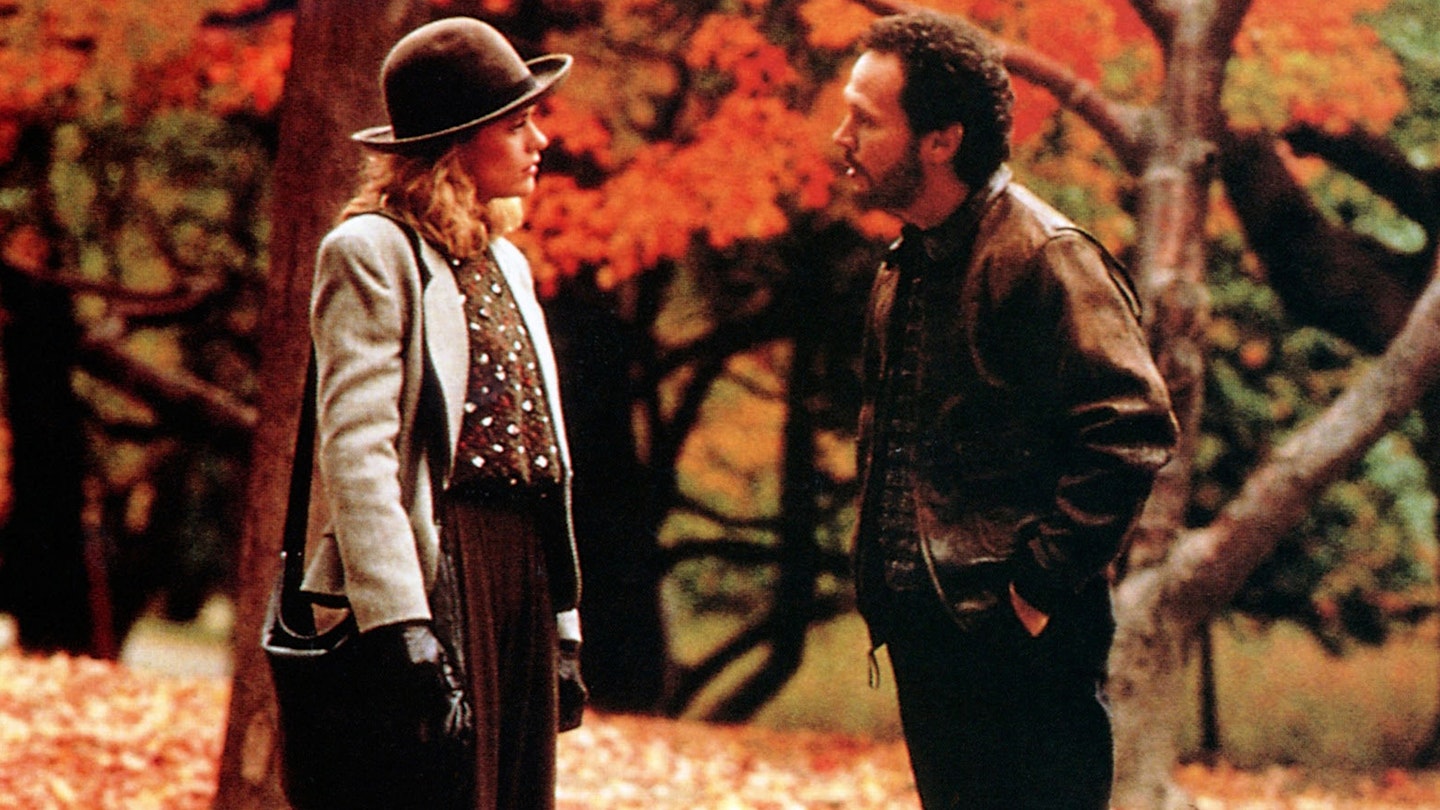
Can men and women ever be just friends? Nora Ephron's script put the age-old adage to the test as best friends Harry (Billy Crystal) and Sally (Meg Ryan) attempt to deal with the fallout of an unplanned sexual encounter. Containing one of the the funniest lines of all time (delivered by director Rob Reiner's mother, no less), and electric chemistry between its leads, When Harry Met Sally... carved Reiner's initials at the very top of the romcom tree.
17. Ferris Bueller's Day Off (1986)
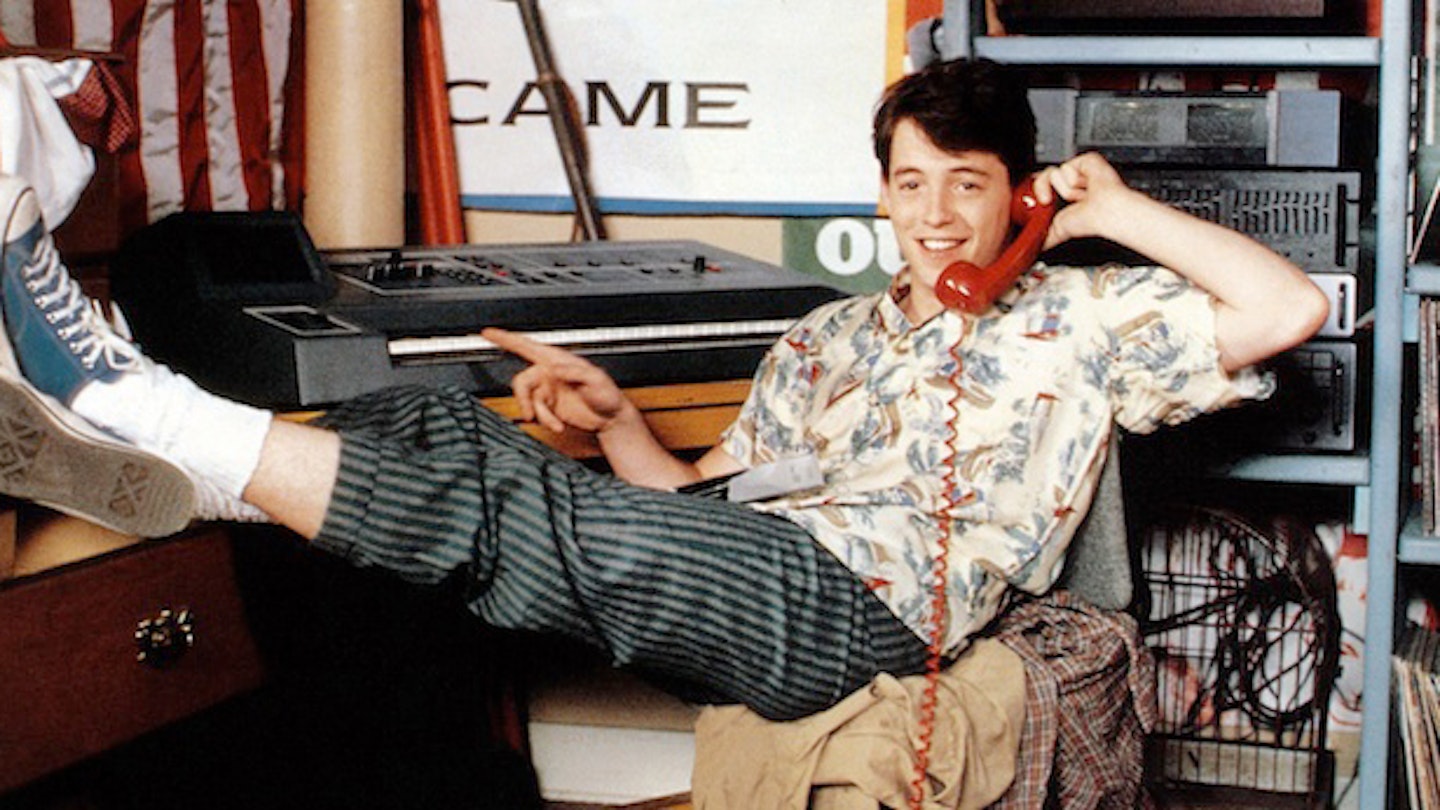
Before Deadpool, there was Ferris. The fourth wall-breaking, school-skipping scallywag catapulted Matthew Broderick to superstardom, becoming anotherJohn Hughes classic in the process. Ferrari 250 GT California Spyders, Twist And Shout, trampoline fence jumping: every set piece is synonymous with Hughes' comedy. It's so '80s, even Jennifer Grey and Charlie Sheen pop up. Infinitely quotable and a bona fide cult classic, if you don't mind, we're off to stare at a Monet.
16. Beverly Hills Cop (1984)
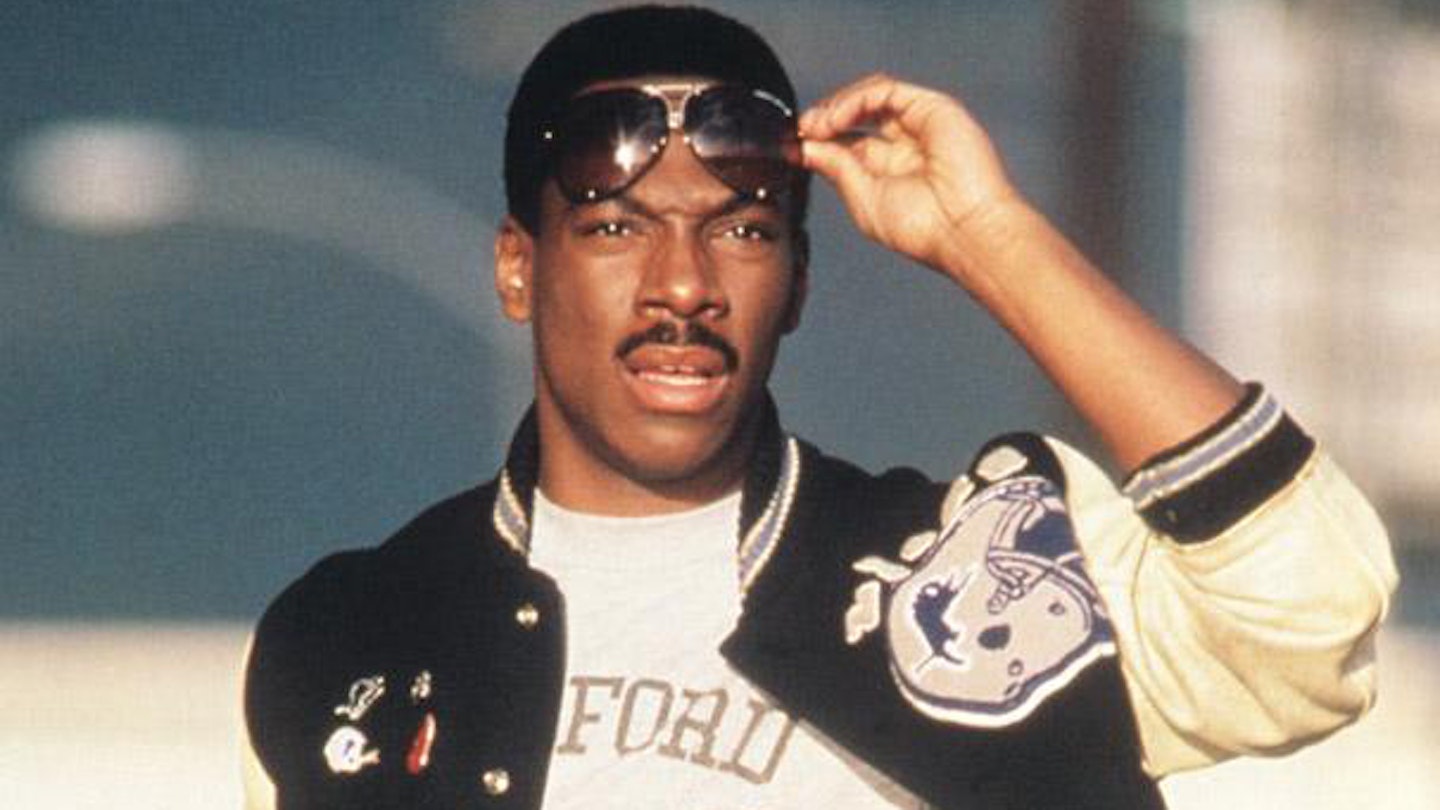
Hot from 48 Hrs., Eddie Murphy took a character ditched by Stallone and turned it into a star-making performance. Lighter and funnier than Reggie Hammond, Axel Foley is a livewire of maverick energy, and there's genuine warmth from supporting players Judge Reinhold and John Ashton as Axel's impromptu Beverly Hills detective 'family'. Of course, there's also that theme tune from Harold Faltermeyer, and great villainy from Steven Berkoff too: tellingly, while he leaves most of his movies out of his autobiography altogether, he mentions this one as a thoroughly good time.
15. Blue Velvet (1986)
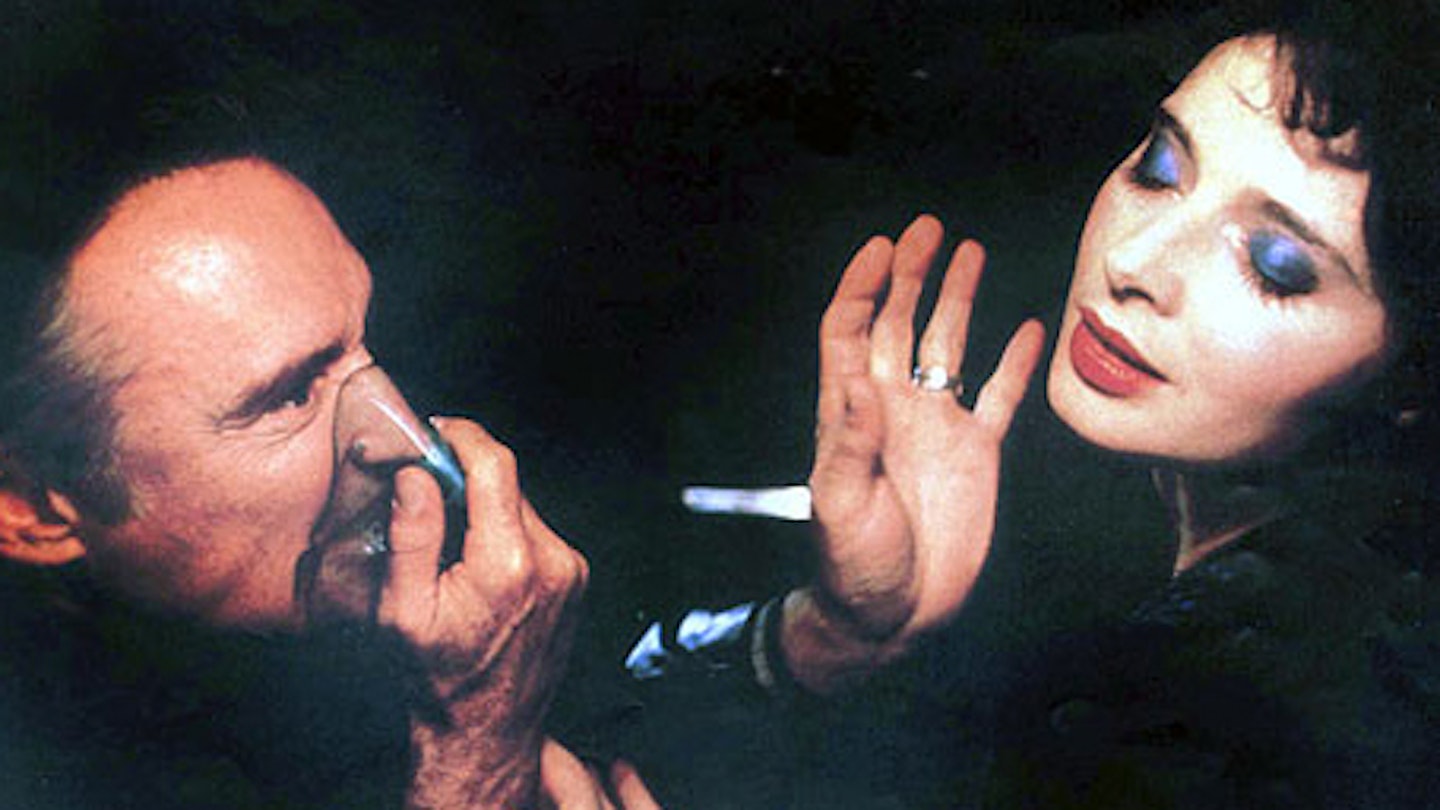
Yielding an '80s villain who's still deeply scary 30 years later, Dennis Hopper's nitrous-sucking weirdo Frank Booth, a sparkling turn from Isabella Rossellini as his kinda-mistress/kinda-prisoner, Dorothy, and David Lynch's second Best Director nod, this surreal mystery peels back America's small-town dream to show something seriously icky beneath. Think The Wizard Of Oz in reverse, only with a lot more violence, drugs and twisted subtext and a much less innocent Dorothy. After the painful fiasco of Dune, Lynch got straight back to his very best.
14. Brazil (1985)
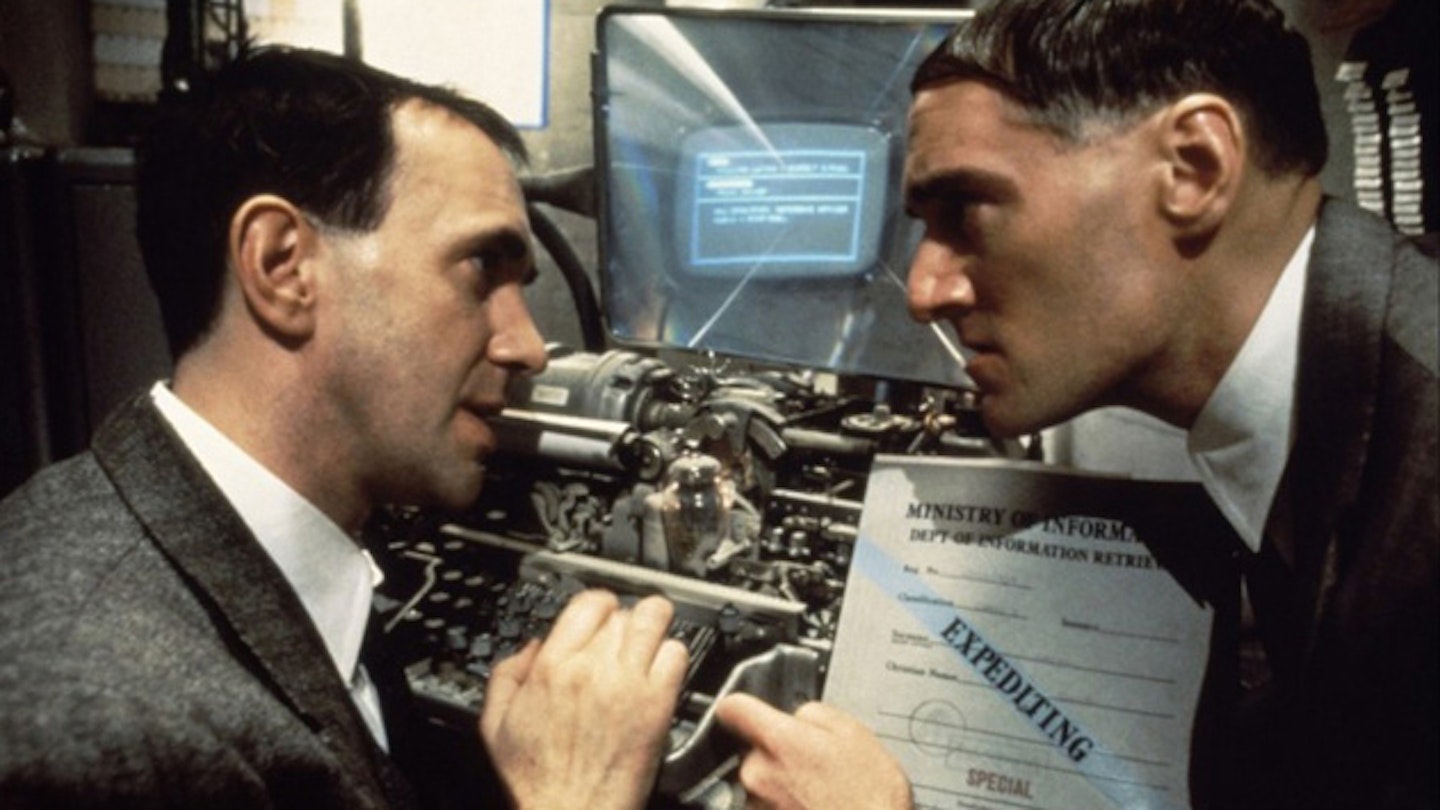
Lurking somewhere between George Orwell and Monty Python, you'll find Brazil. Well, somewhere closer to Orwell than the '60s-born surrealist comedy troupe, despite the fact the film was created, co-written and directed by one of them (Terry Gilliam) and starred another (Michael Palin). After all, Gilliam's original title for the movie was 1984 1/2, and its '40s-ish, freedom-choking dystopia aesthetically places it in the decade of 1984's publication. As does its ultimately bleak outlook (dreams, love and liberty will be crushed). But the comedy, dark as it is, still rings out, and its satire remains as sharp as it was in the Thatcher/Reagan era that sired it.
13. Stand By Me (1986)
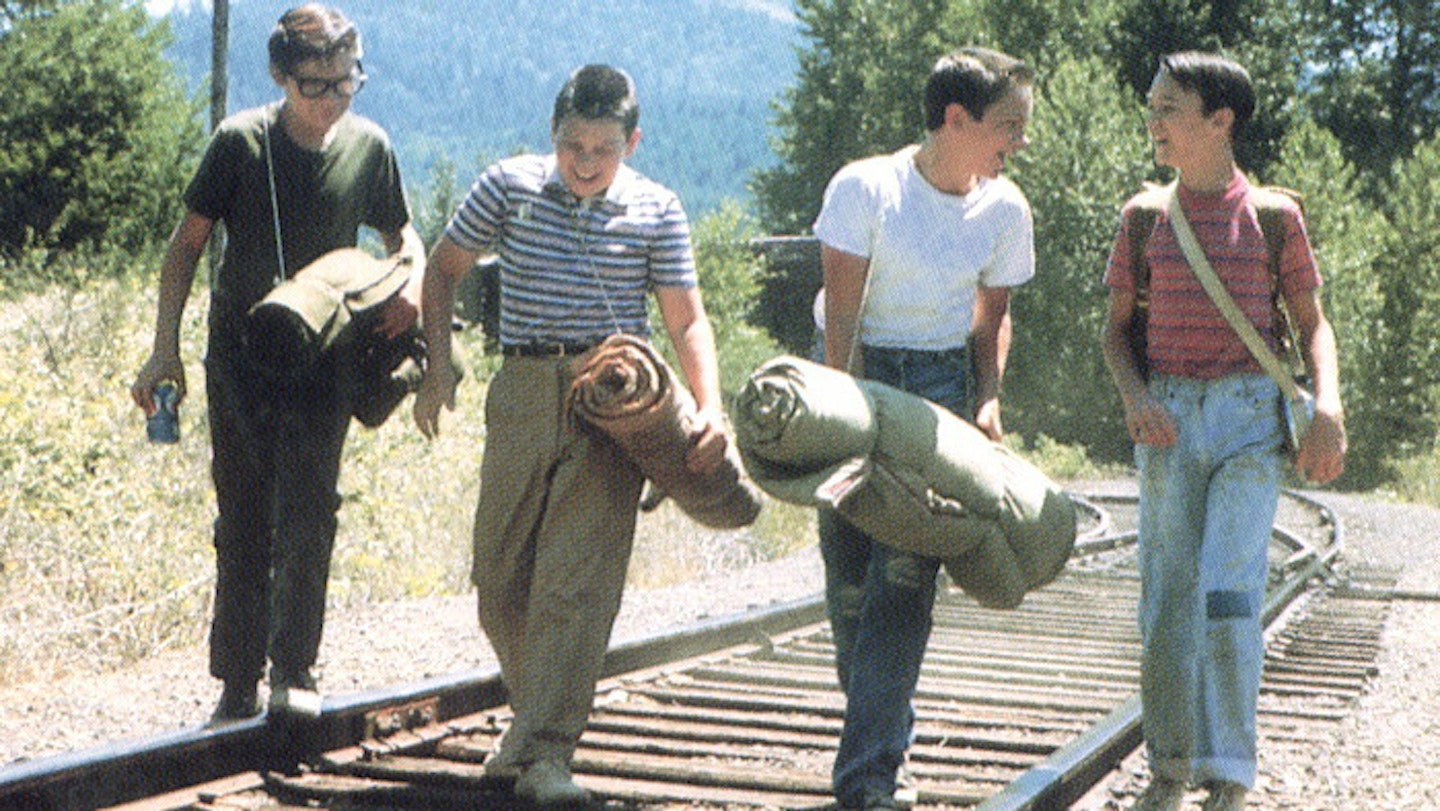
Coming-of-age movies don't come much more coming-of-age than Rob Reiner's Stephen King adaptation. Perfectly capturing the fading playfulness of childhood wonder during the hunt for a dead body, Gordie (Wil Wheaton), Chris (River Phoenix), Teddy (Corey Feldman) and Vern (Jerry O'Connell) are a gang that youngsters will want to join for years to come. Bookended by Richard Dreyfuss, Stand By Me is as affecting on the rumbling train tracks as it is during the quiet moments in his study.
12. Ran (1985)
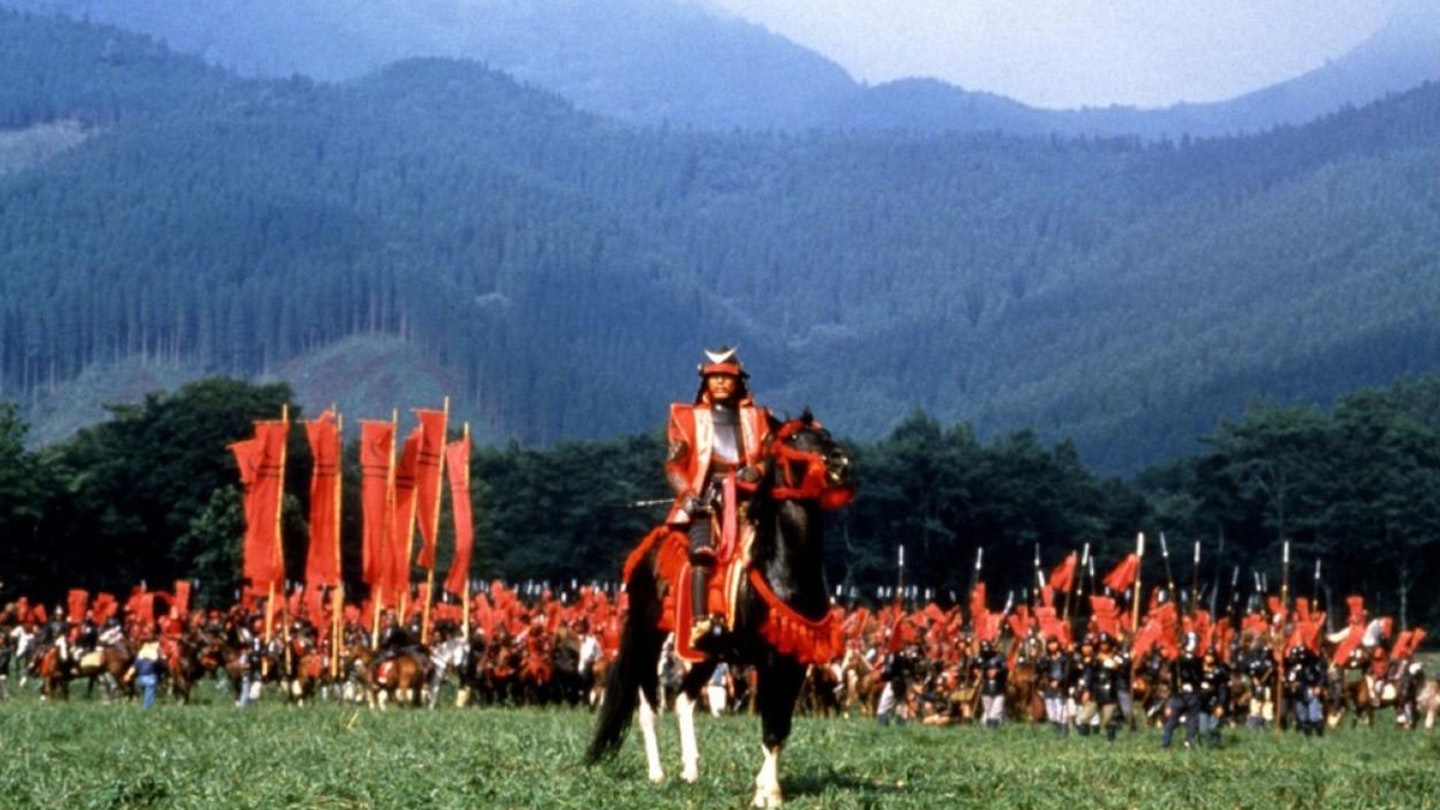
Shakespeare has never been more action-packed than in Kurosawa's version of King Lear - and, yes, we're including The Last Action Hero. Kurosawa devotees will bemoan the absence of Toshiro Mifune – the great collaborators had long-since gone their separate ways – but the use of primary colours, the choreography of the vast melees and deep themes of loyalty and family place it up there with his very best. The tragic aristocrat at its centre, played by jidaigeki great Tatsuya Nakadai, loses control of his destiny – and his kingdom – in one of the most memorable climactic battles this side of Saving Private Ryan. Catch the new Ran-storation to witness all that bloody carnage in dazzling 4K.
11. The Shining (1980)
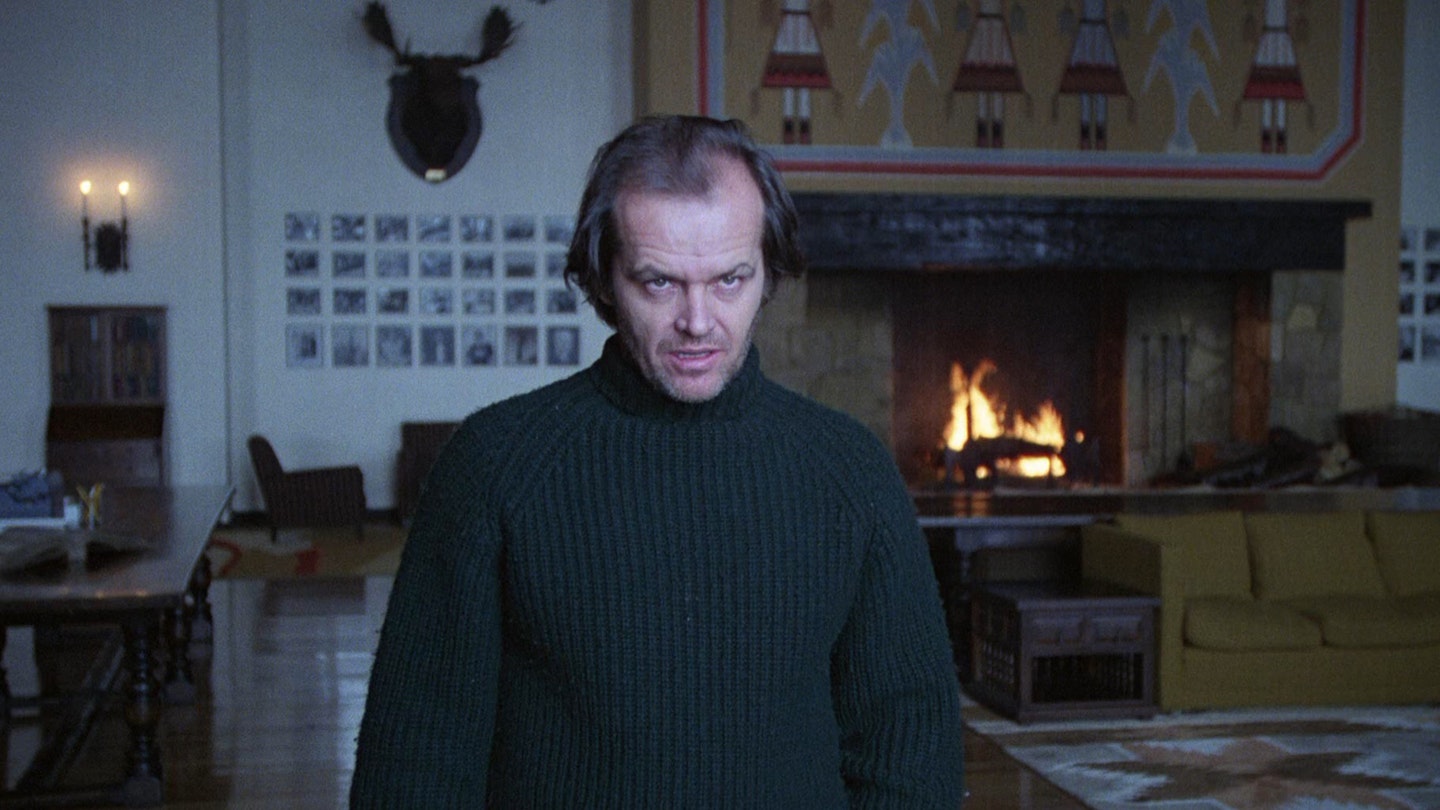
Stephen King famously hates Stanley Kubrick's version of The Shining. Kubrick, with surgical precision, stripped away everything he thought was silly in King's novel – haunted hosepipes; ambulatory topiary – leaving just the core: a relentless study of a man going mad in an empty hotel. King complains that Jack Nicholson is clearly crazy from the beginning of the film. There's something in that. But the atmosphere of dread and horrible anticipation that Kubrick creates, prowling the hotel's corridors with Garrett Brown's Steadicam, remains almost unmatched. King tried his own TV miniseries version in the 90s. Didn't even come close.
10. Evil Dead II (1987)
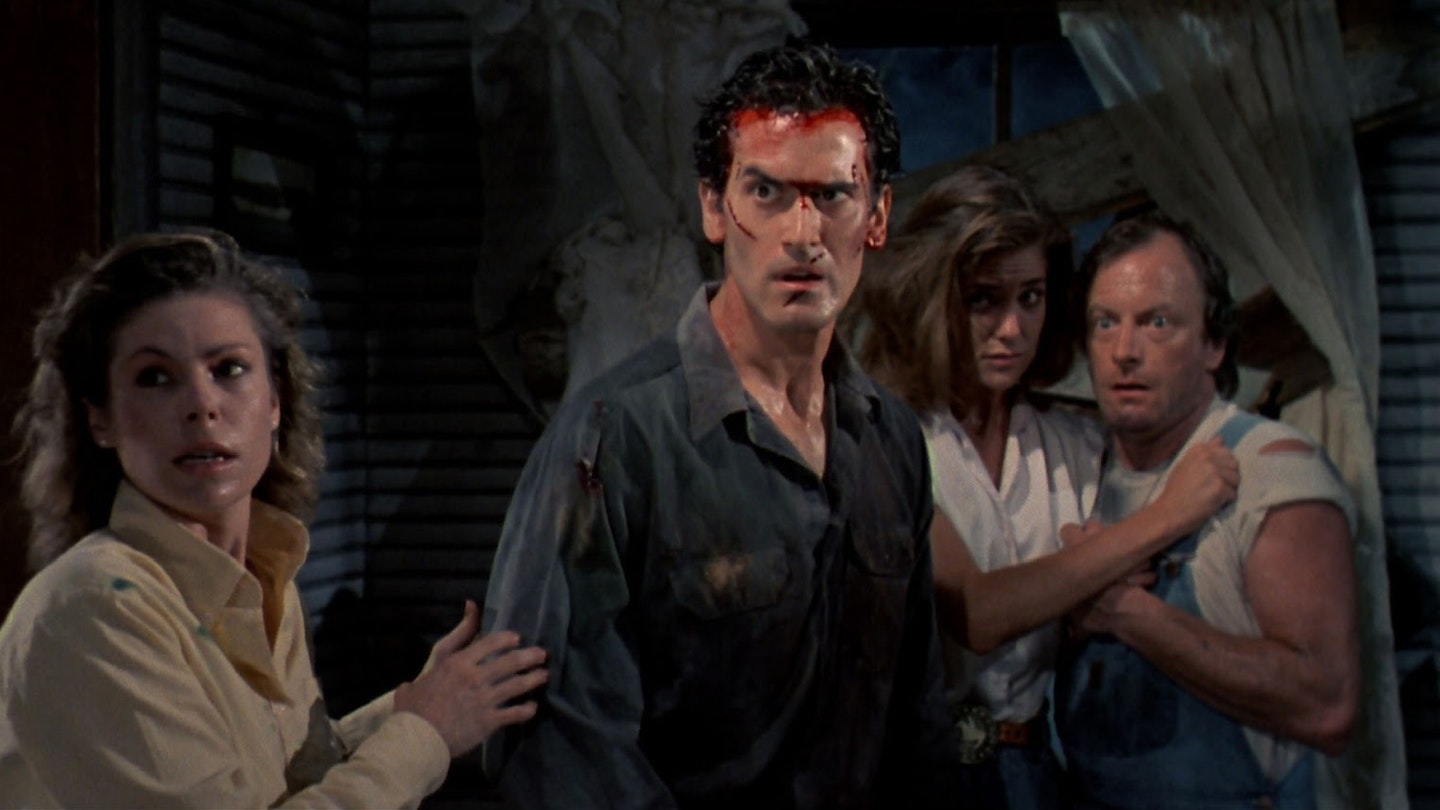
Lots of people complained that the Evil Dead remake wasn't funny enough. Evil Dead II – occasionally subtitled 'Dead By Dawn' – has now so far eclipsed the original 'ultimate experience in grueling horror' in popular consciousness that we can't now imagine Bruce Campbell's Ash as anything but a hapless splatstick loon. The Evil Dead had a gnarly energy, but Evil Dead 2 goes properly insane: the standout sequence being Campbell's bravura physical performance as Ash endures a lengthy battle with his own hand. The classic chainsaw / boomstick combo has recently been resurrected on TV, but it begins here. In a word, groovy.
9. This Is Spinal Tap (1984)
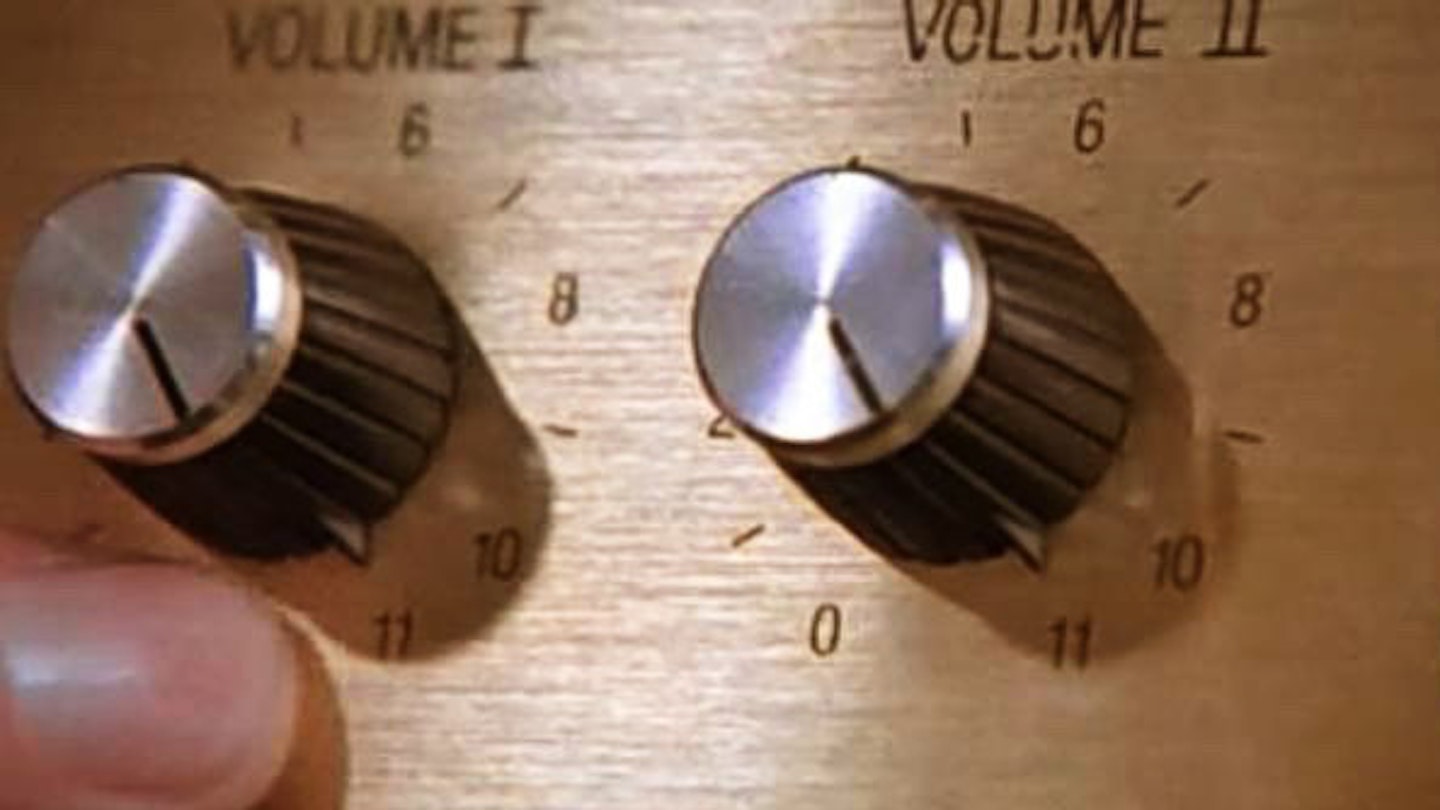
Rob Reiner's mockumentary, or, "if you will, rockumentary", proved so convincing that, for many members of its early audience, it was taken as a straight-up documentary. Even genuine rock stars who knew it was fake thought it felt real; The Misfits' Glenn Danzig said, "When I first saw Spinal Tap, I was like, 'Hey, this is my old band'." Thanks to Reiner and main players Christopher Guest, Michael McKean and Harry Shearer, the veracity is deeply impressive (they wrote and performed all the songs, too). But what really makes it as enjoyable to watch 32 years later is the fact that it's also so incredibly, neverendingly funny.
8. E.T. The Extra-Terrestrial (1982)
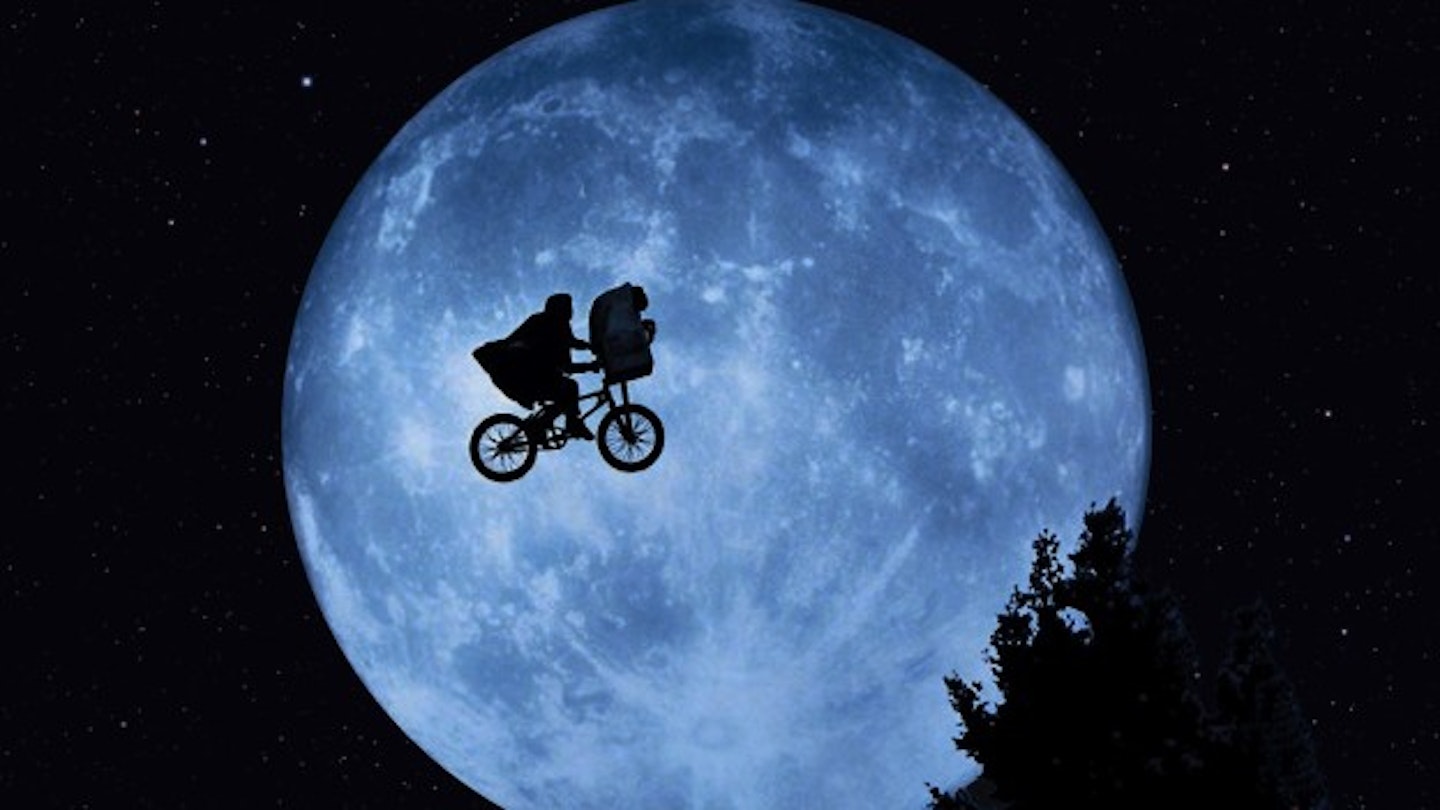
In box-office terms, E.T. was the biggest film of the 1980s. For a time, it was the highest-grossing film of all time (at least, until Steven Spielberg broke his own record with Jurassic Park). It's not hard to see why: here was the perfect alchemy of blockbuster entertainment, spellbinding science-fiction, and old-fashioned, big-hearted storytelling. The folkloric fable of the little alien with a heart of gold had 'em queuing round the block, and quickly embedded itself in the consciousness of a generation.
7. Aliens (1986)
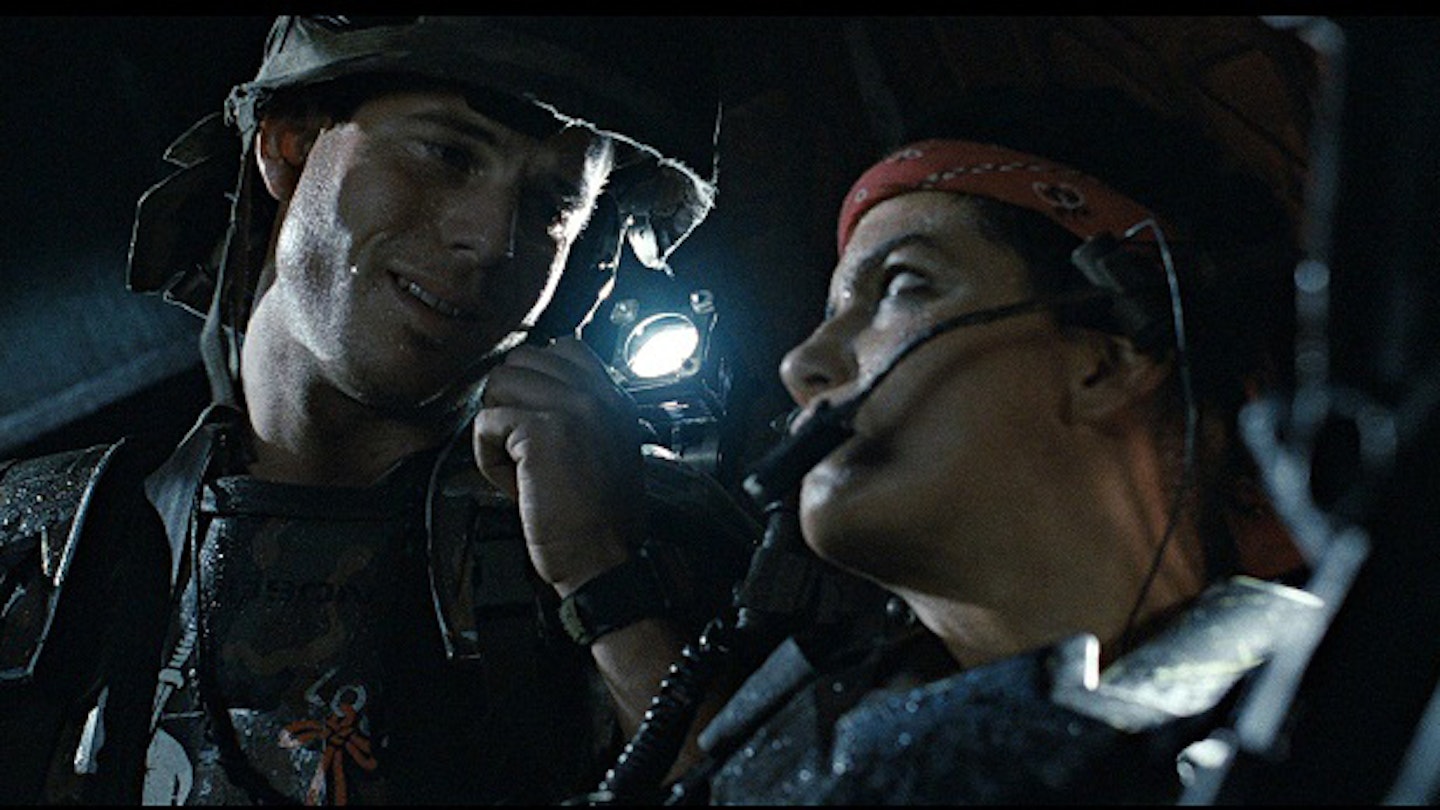
Imagine Aliens getting announced in our current social media age. 'Alien is perfect – leave it alone!' the internet would howl. And of course, the internet would be wrong. James Cameron, in those days a former FX guy who'd directed a low-budget cult- sci-fi called The Terminator (plus Piranha 2: Flying Killers) took Ridley Scott's gothic space horror and extrapolated it into a war movie, expanding the mythology in the process. We'd seen the face huggers and the xenomorphs before. But now, in one of cinema's greatest shock reveals, we had a queen...
6. Die Hard (1988)
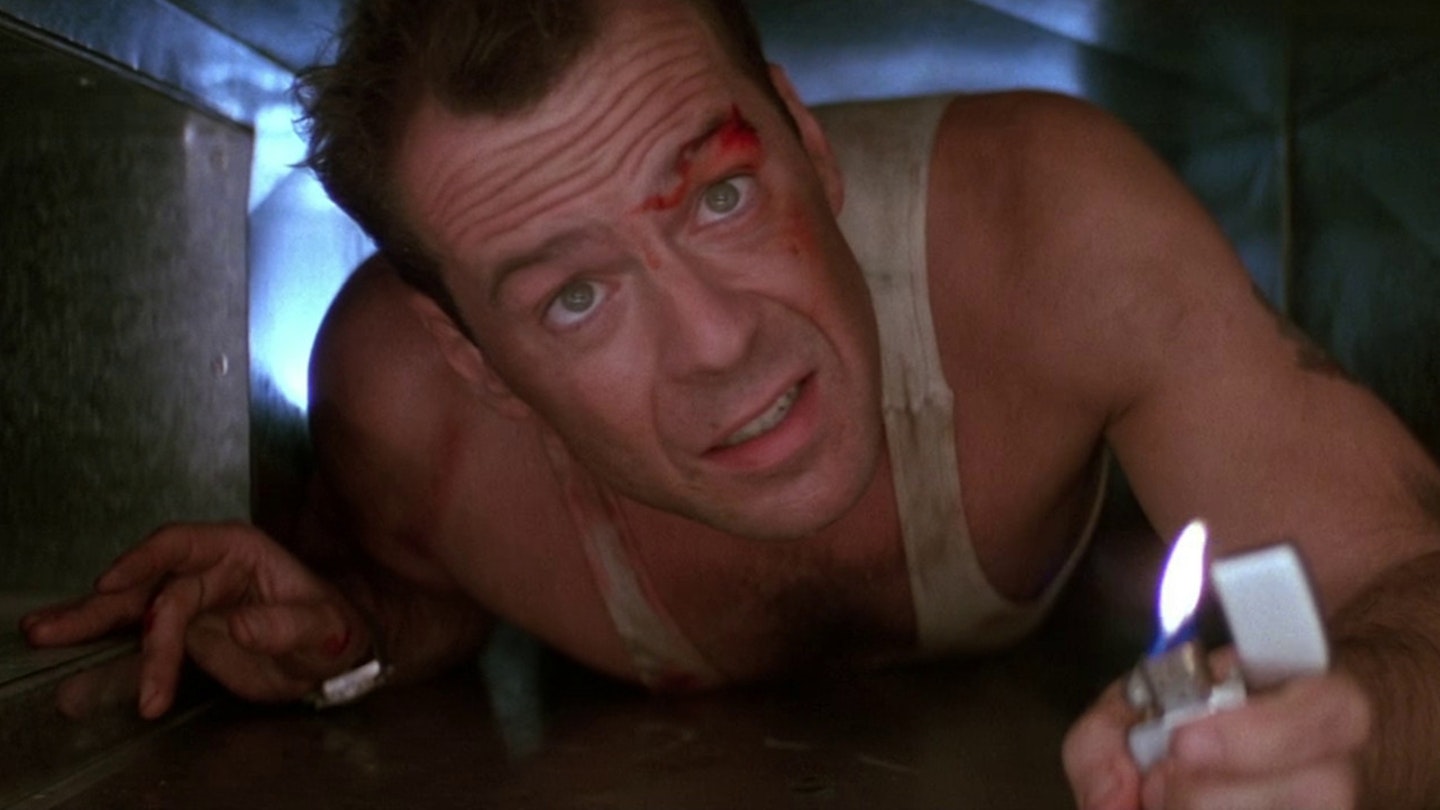
In the 1980s, action movies tended to be the preserve of steroid-addled muscle men, chain-gunning their way to body-counts of infinitude. At the decade's close, a sitcom star and a sci-fi/horror director made an action movie about a regular schmoe in the wrong place at the wrong time and inadvertently made the greatest action movie of all time. It's sometimes easy to forget that John McClane was a product of the 1980s (only Holly McClane's hair and Ellis' coke habit really signpost the era), but that's what you get for being a timeless classic. Yippee ki, and indeed, yay.
5. Back To The Future (1985)
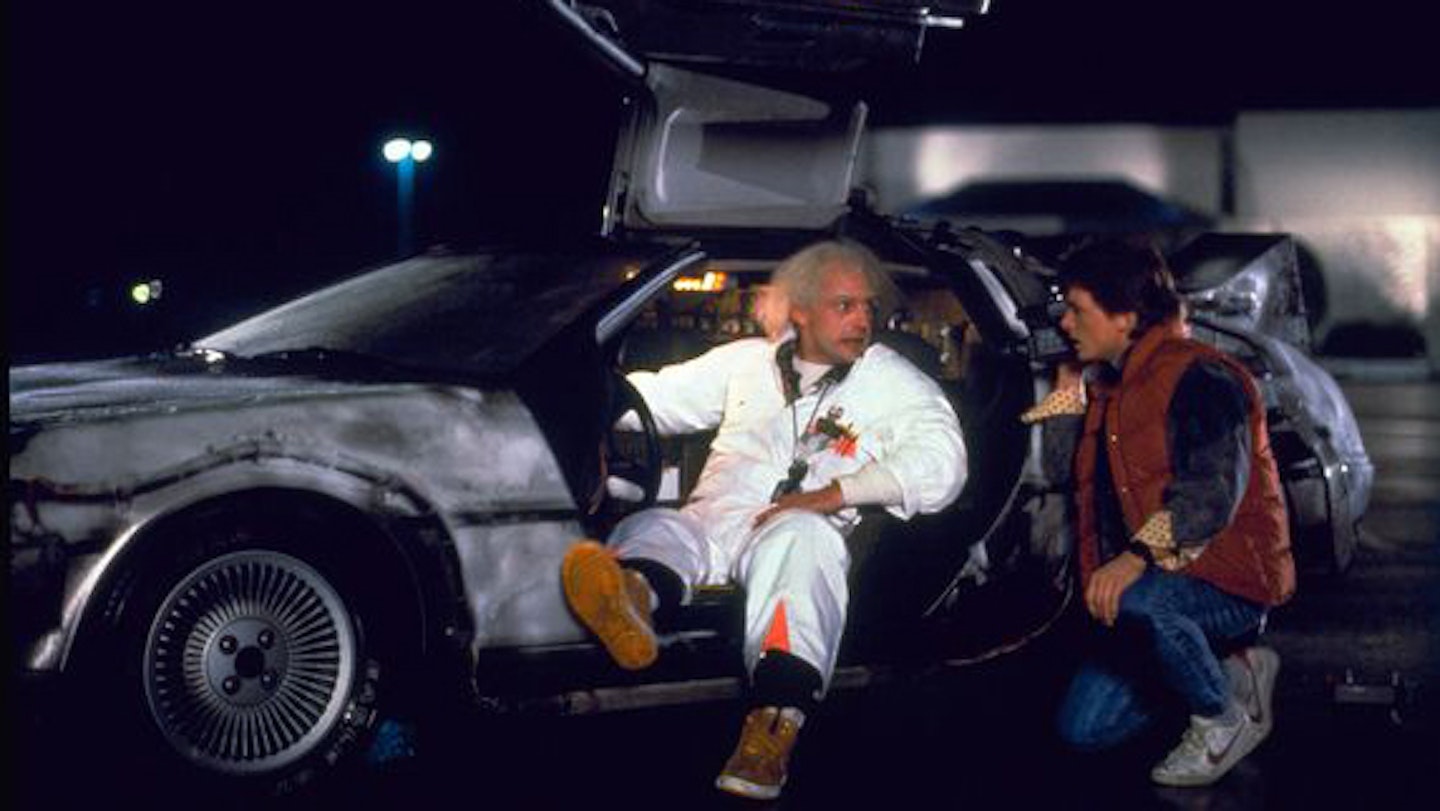
On paper, it's hard to relate to a film that contains Libyan terrorists and a time-travelling DeLorean. But Robert Zemeckis' sci-fi comedy is filled with enough cringeworthy, relatable moments (kissing your own mother, anyone?) to ensure his flux-capacitor-fuelled adventure is one you very much want to stay aboard. The highest-grossing film of 1985, BTTF may be more concerned with the 1950s, but it's one of the most quintessentially '80s films on this list.
4. Blade Runner (1982)
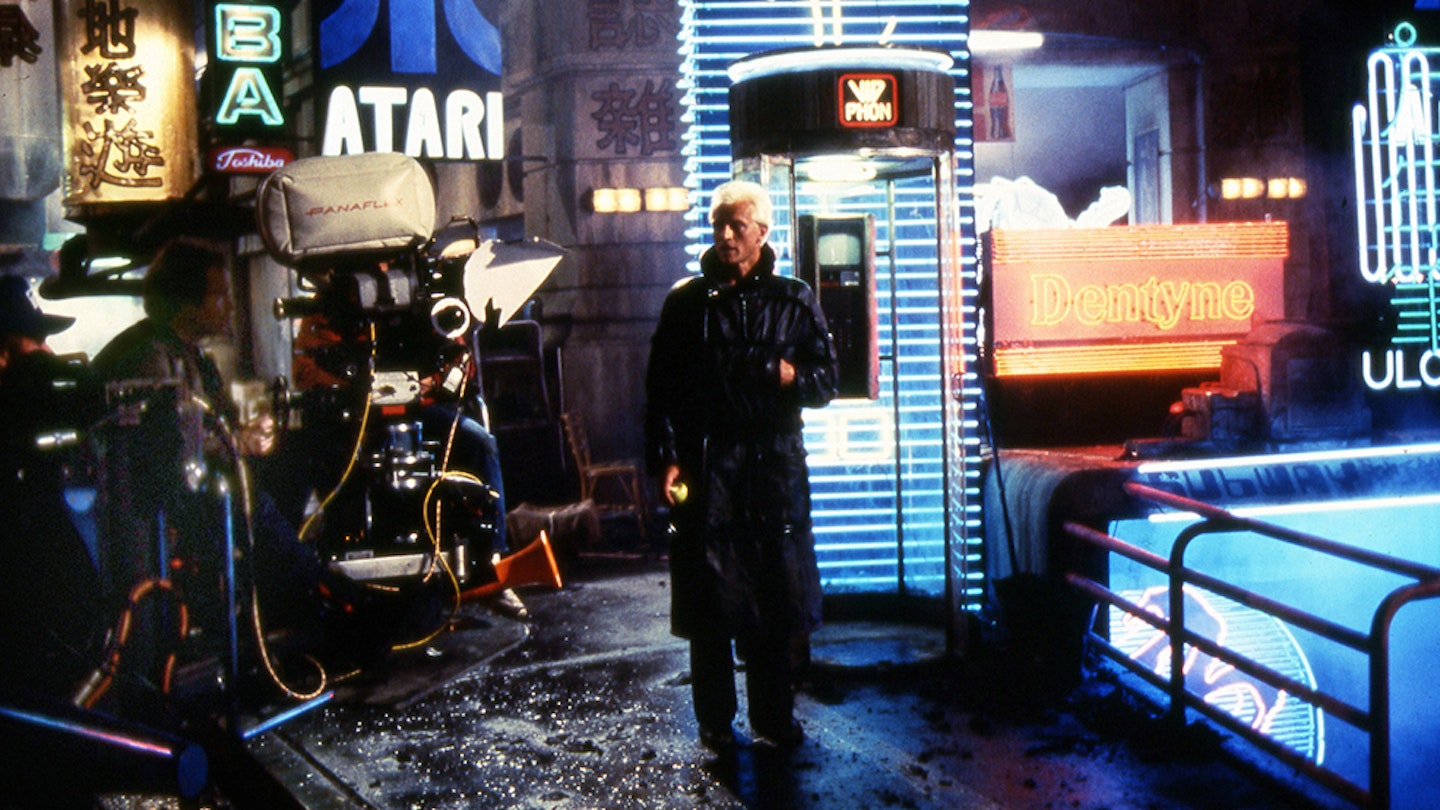
We are just a few years shy of Blade Runner's 2019 setting, and it's starting to seem unlikely that everyone in Los Angeles will drive hovercars and carry neon umbrellas. No matter: this is perhaps the mostly gorgeously realised vision of a (1980s-inflected) future ever committed to screen. The futurist imagination of Ridley Scott's sci-fi neo-noir will beguile; the mystery behind Deckard – more human than human? – will engross; Scott's ahead-of-its-time effects and distinctive art direction will astound.
3. Raging Bull (1980)
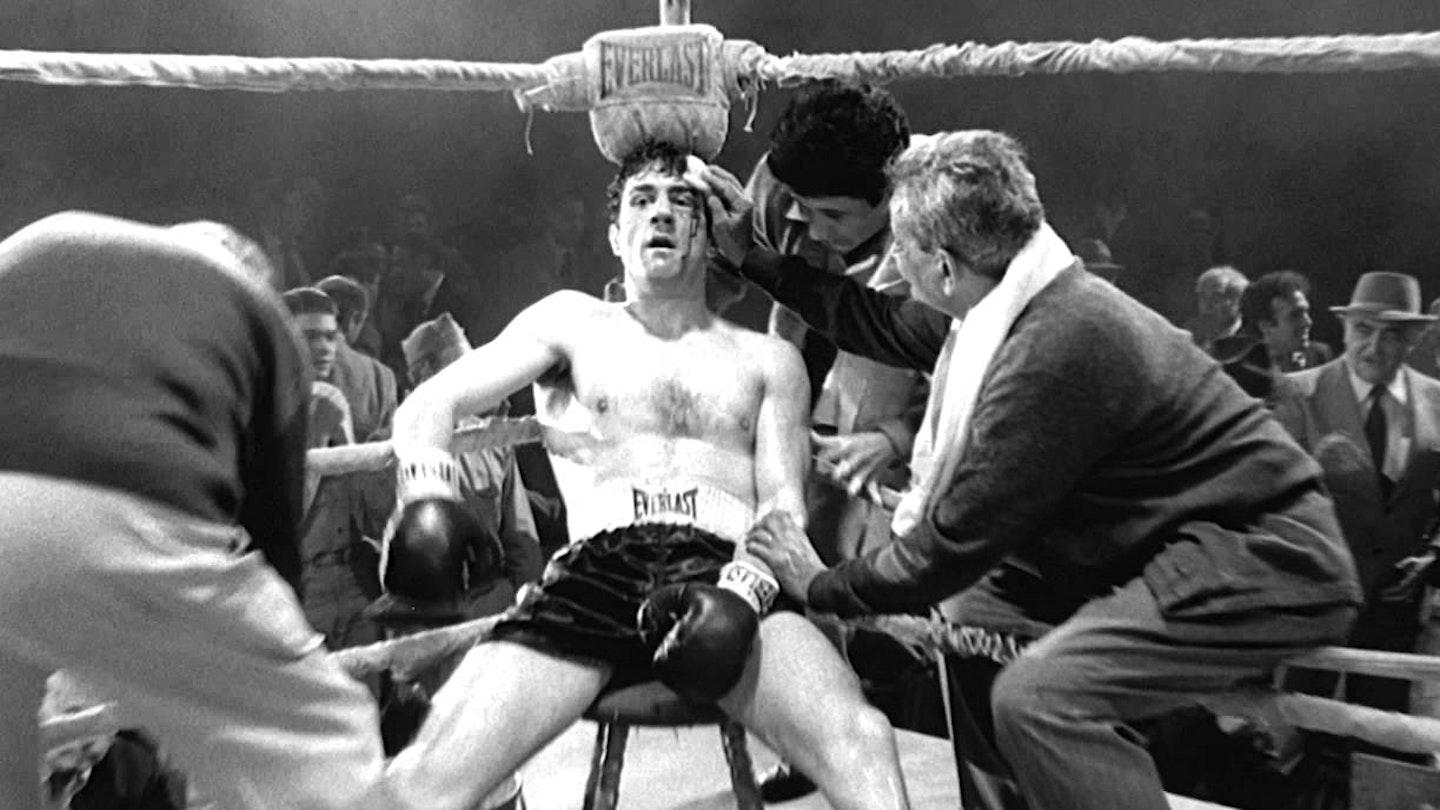
Martin Scorsese's boxing opus famously lost out at the Oscars to Robert Redford's stolid (if unfairly maligned) Ordinary People. If time has not been especially kind to that decision, you can see why Redford's story of a broken American family might have chimed more with voters than the bruising, artful undercurrents of Raging Bull in the uncertain days of Jimmy Carter's America. Shot in stark monochrome by Michael Chapman and stitched together perfectly by Thelma Schoonmaker, Jake LaMotta's journey out of the ring and into a personal hell of booze and domestic violence is captured by Robert De Niro in possibly his finest performance.
2. Star Wars: Episode V - The Empire Strikes Back (1980)
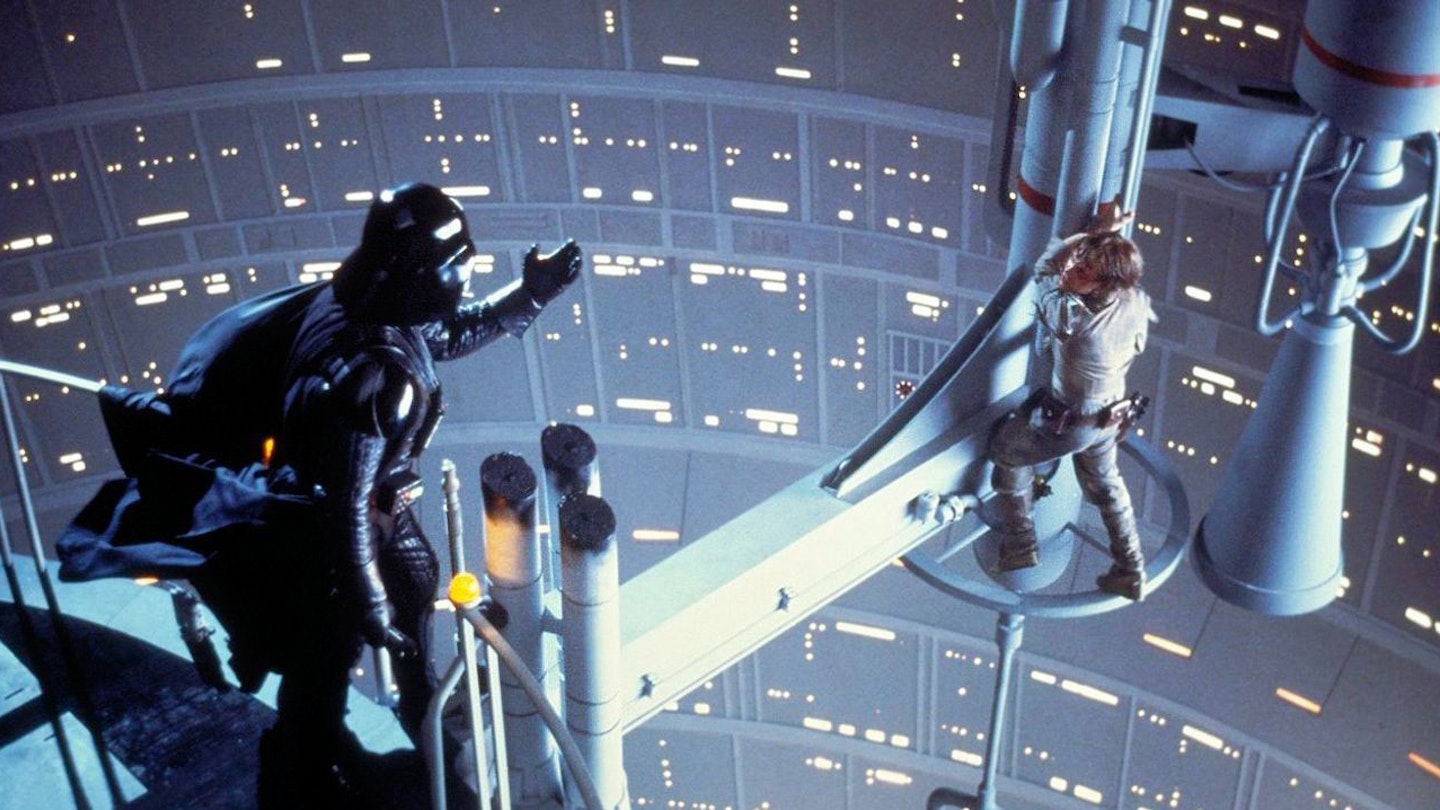
Three years after Episode IV turned Mark Hamill, Harrison Ford and Carrie Fisher into household names, director Irvin Kershner somehow delivered an even better sequel. Empire spent time in both the skies and the swamp as Luke (Hamill) began to truly understand the ways of the Force – but forget all that. Empire was really about discovering Vader was Luke's father, spawning a million parodies in its wake. Has there ever been a better third-act revelation? We're saying 'no'.
1. Raiders Of The Lost Ark (1981)
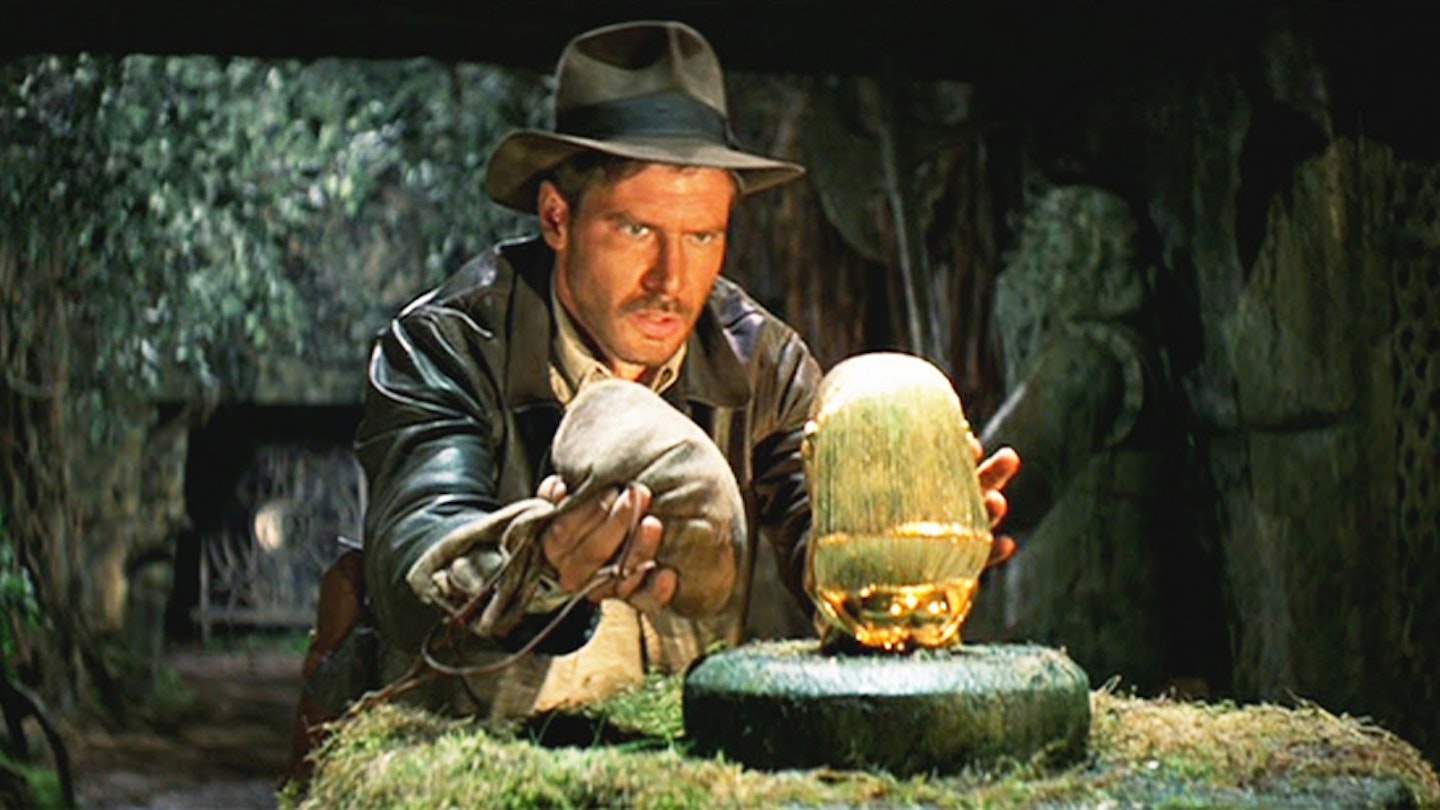
Nazis, the Staff of Ra and a boulder the size of a small house were the order of the day for Harrison Ford in his first Indy outing. An archaeologist protagonist (proteologist?) may not sound all that exciting, but Steven Spielberg and George Lucas' franchise follow-up to Star Wars succeeded, among many other reasons, in not taking itself too seriously. Lesser prequels and sequels followed, but Raiders cemented a post-A New Hope and Empire Strikes Back Ford as a Hollywood heavyweight. Face-meltingly good stuff.
